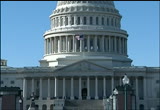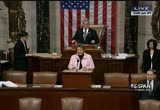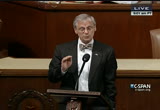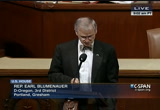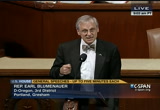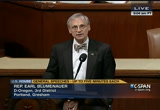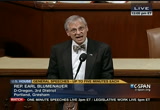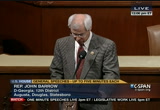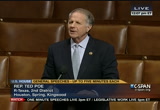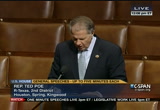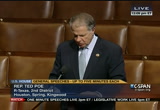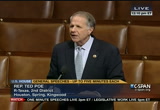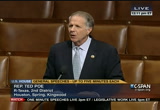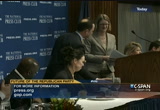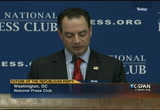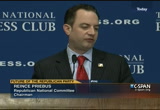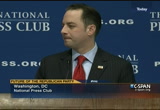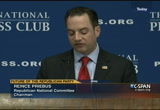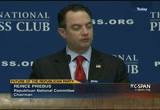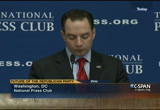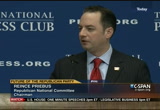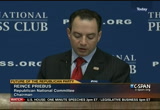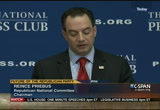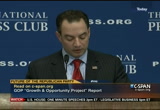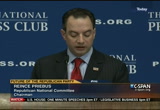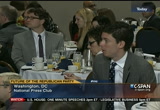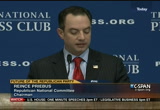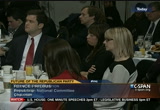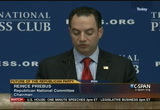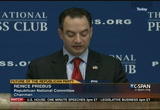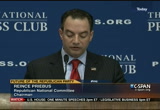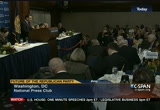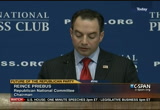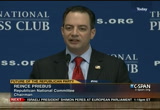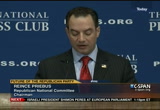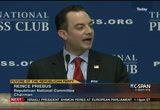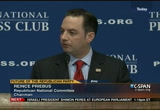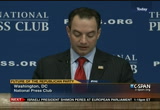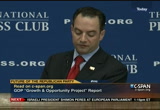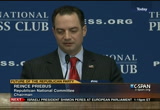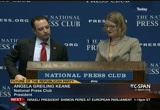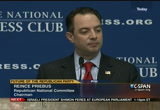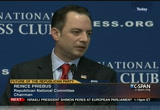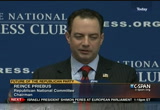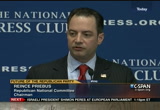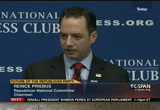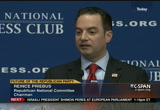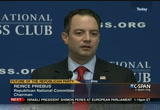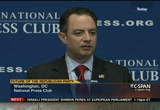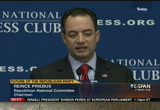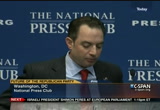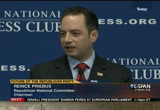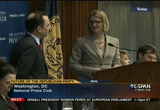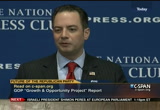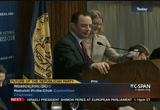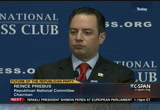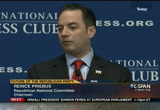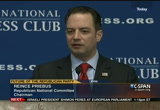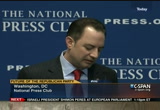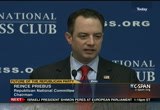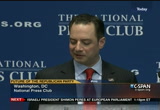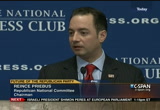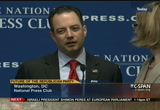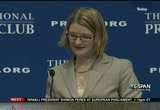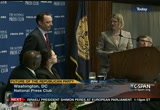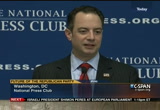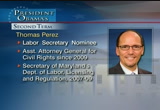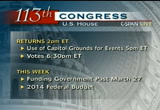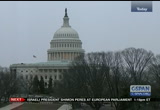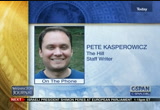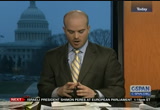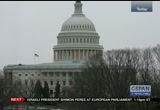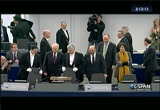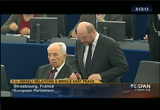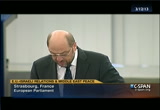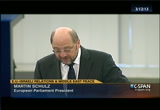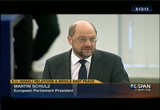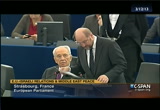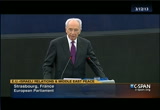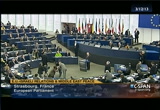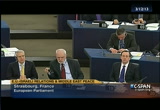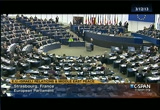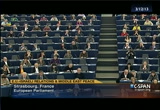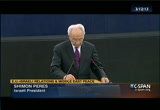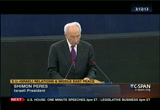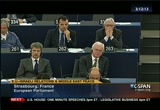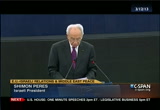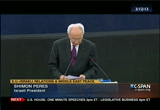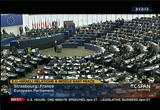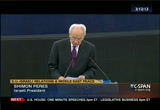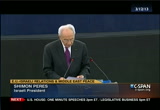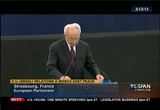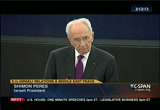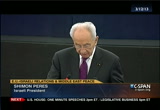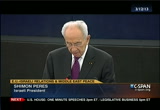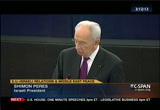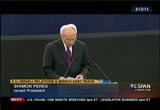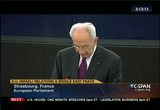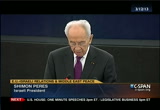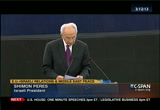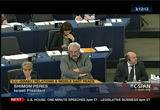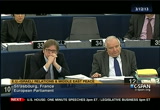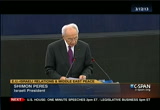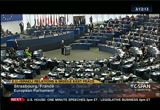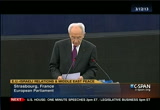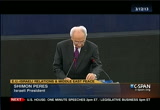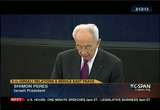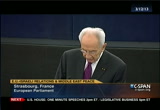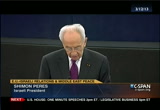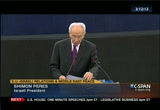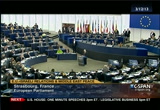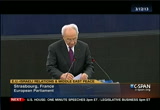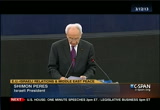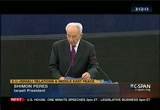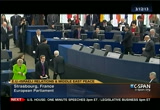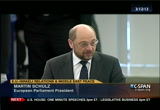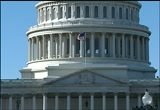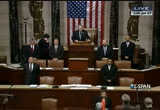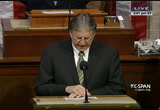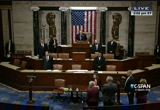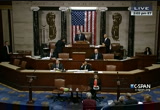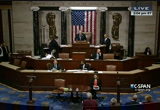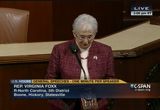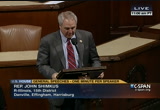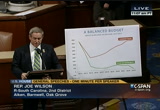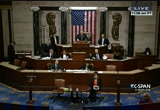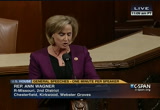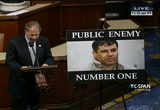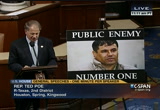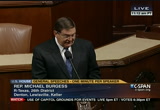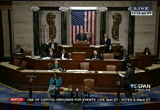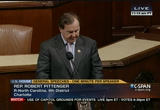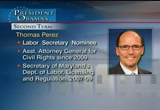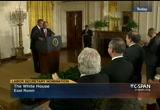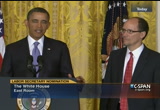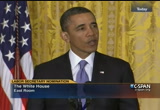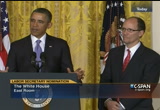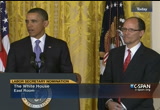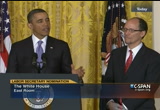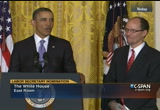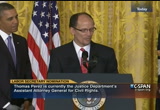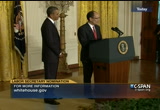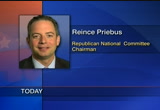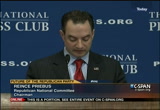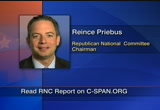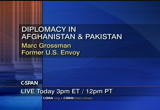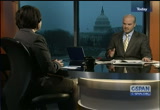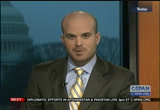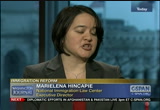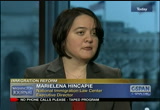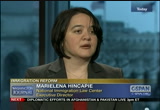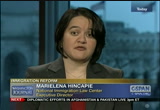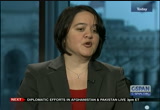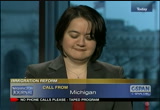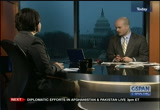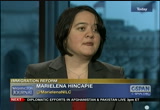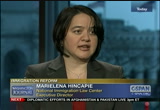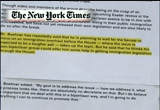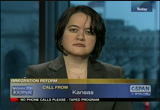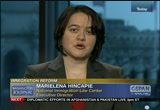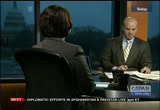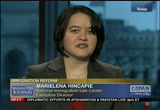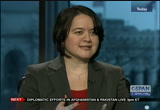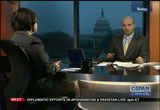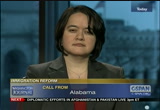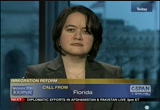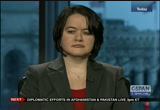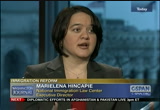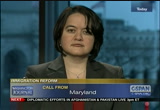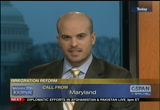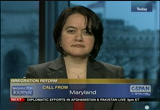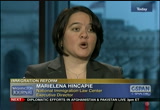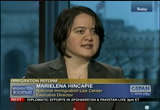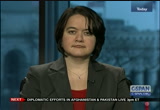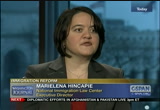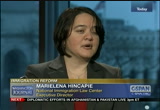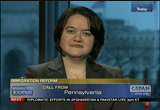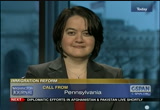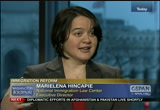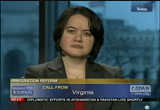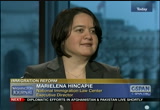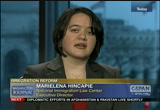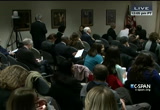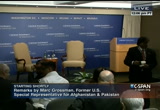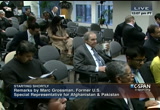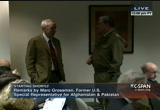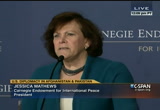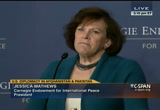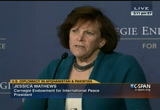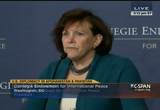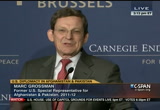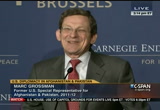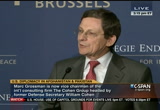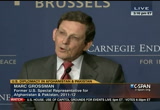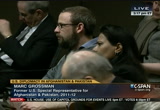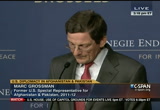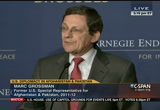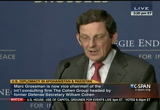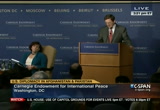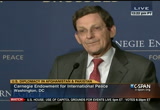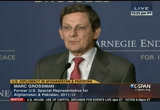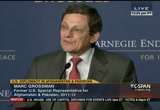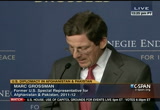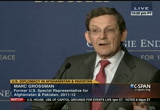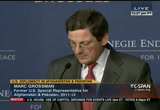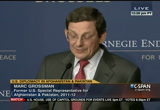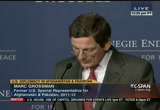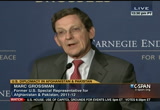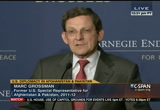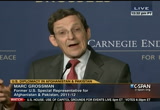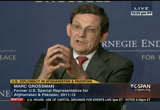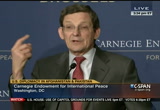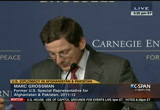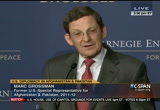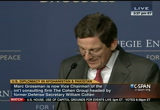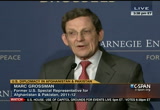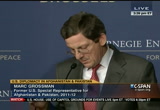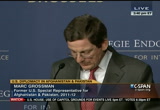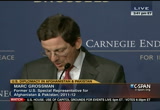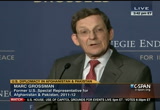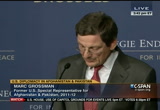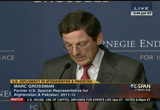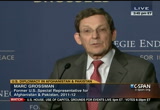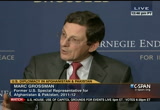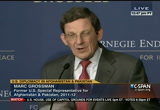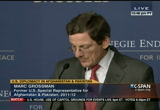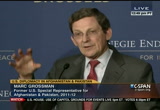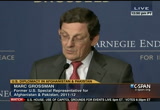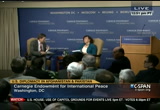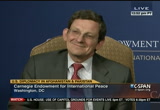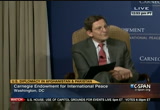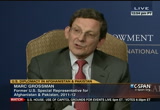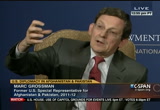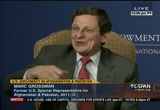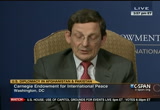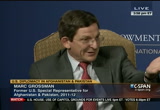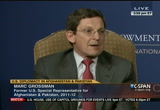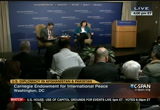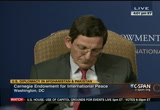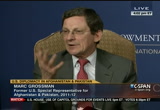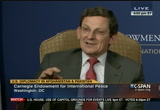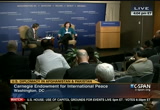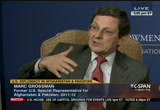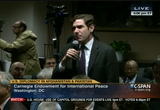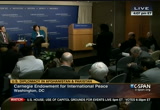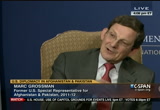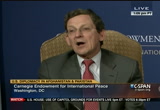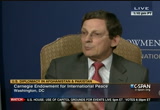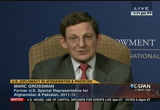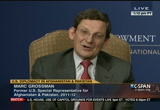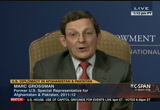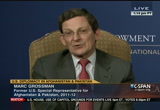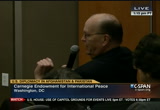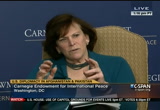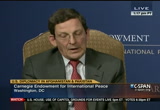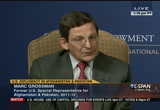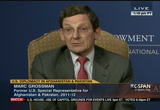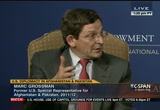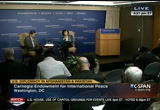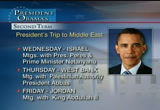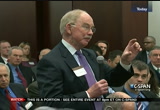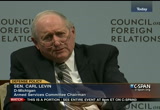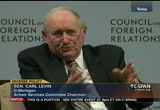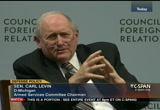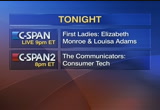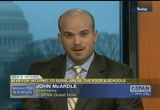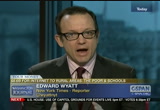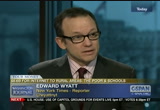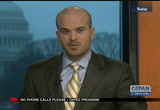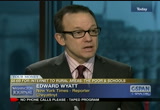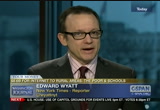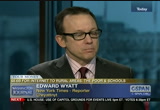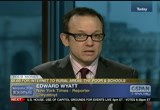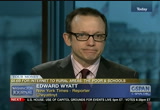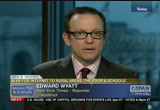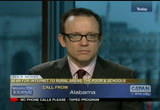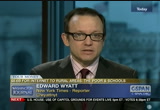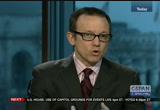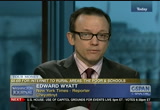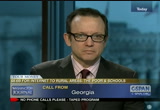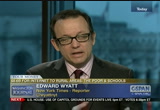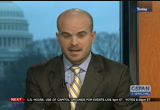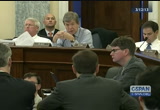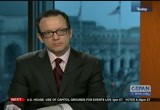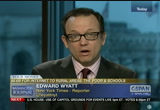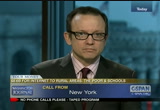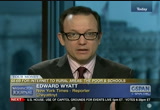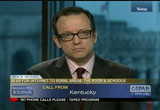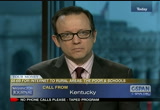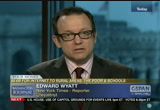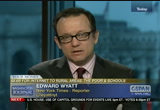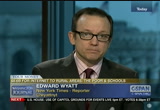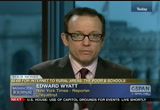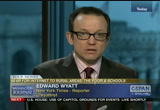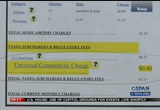tv Public Affairs CSPAN March 18, 2013 12:00pm-5:00pm EDT
12:00 pm
to gavel hour.h morning the house will >> any vote will take place as 6:30 p.m. eastern. later they will be working on the federal budget. there will go into negotiations on the spending. there also debate the house republican republican plan for the fiscal year. not to live coverage. the speaker pro tempore: the house will be in order. the chair lays before the house a communication from the speaker. the clerk: the speaker's rooms, washington, d.c. march 18, 2013. i hereby appoint the honorable brad win strup to act as speaker pro tempore on this day. signed, john a. boehner, speaker of the house of
12:01 pm
representatives. the speaker pro tempore: pursuant to the order of the house of january 3, 2013, the chair will now recognize members from lists submitted by the majority and minority leaders for morning hour debate. the chair will alternate recognition between the parties with each party limited to one hour and each member other than the majority and minority leaders and minority whip limited to five minutes. but in no event shall debate continue beyond 1:50 p.m. the chair recognizes the gentleman from oregon, mr. lumenauer, for five minutes. mr. blumenauer: thank you, mr. speaker. this week we begin the republican charade of pretending to balance the budget in 10 years without a hint of how it really is possible. they intend to repeal obamacare, which was the central issue the last campaign where you remember president obama was re-elected, the senate went even more
12:02 pm
democratic, and the house democrats gained seats and won over a million more votes than the republicans. normal people would think that the obamacare issue might be settled. does anybody realistically think it's going away any time soon? the republican fantasy budget reduces taxes dramatically without a hint of how it would be possible. without exploding the deficit or dramatically raising taxes on the middle class. this is consistent with what the romney ryan ticket said on the campaign trail last fall. the same issue where they dodged, assembled, and ignored the perfectly reasonable question how is it possible? six months later it's back in the budget but there's still -- but there still is no answer. during the last 40 years there have been only four budgets without deficits. the last three clinton budgets and the one that george bush inherited from bill clinton.
12:03 pm
in each case taxes as a percentage of the total economy were over 20%. in this republican fantasy land budgets are balanced with revenues at 19% of the economy, yet meeting the needs of 78 million more seniors and a infrastructure deficit that is growing as america is falling apart. clearly this is not remotely possible if we are going to enjoy anything like our current quality of life. there is a real world intersection of budget saving opportunities with potential areas of agreement. health care reform is one. but not just by shifting the burden to seniors and disabled as the republicans propose in their fantasy budget. my home state of oregon is the middle of an exciting demonstration of how to squeeze out the waste we all know is there and realign incentives. instead of the empty ritual of pretending to repeal obamacare,
12:04 pm
let's work together to accelerate reform for all americans. if the oregon experiment works, and frankly many of these efeshencies by the way are already achieved in other parts of the country and with some private health systems, we could save more than $1.2 trillion that is the flawed sequester is supposed to achieve in the next 10 years. another area of irresponsibility in the republican budget is defense. instead of increasing pentagon spending, we should reform it. the most obvious target is the nuclear arsenal larger than anything we need for nuclear deterrence. 10% of our nuclear weapons would decimate russia. a handful of missiles would wipe north korea off the map. yet they propose to spend over 2/3 of a trillion dollars over the next 10 years on this bloated arsenal. before we increase the pentagon budget, maybe we should figure out why the f-35 joint strike
12:05 pm
fighter, which is now seven years behind schedule, 70% over budget, and the pentagon still doesn't know how it's going to meet the more than $1 trillion in operating and maintenance cost. amazingly the republicans want to increase spending for the pentagon, the only major budget so flawed it can't even be audited. there are bipartisan opportunities to reduce and reform the military, but you're not hearing about it in the republican budget this week. instead of a republican rerun of a bad reality tv show, let's consider working together on areas to change how the government does business and give more value to the taxpayer while we get spending under control. the speaker pro tempore: the gentleman yields back. the chair recognizes the gentleman from georgia, mr. arrow, for five minutes.
12:06 pm
mr. barrow: mr. speaker, i rise today to urge my colleagues to join me in support of house joint resolution 33 which would reshape the way washington operates. because congress has failed to do its job to find the spending cuts we need to replace the sequester, folks all across this country, including folks in my district in georgia, will pay the price. unfortunately in washington there are rules that prevent members of congress from being penalized for not doing their jobs. the constitution doesn't protect the folks at home so why should it protect the pay of members of congress? the 27th amendment of the constitution was written to prevent members of congress from giving themselves pay increases, but lately it's been used as a shield to prevent a congressional pay cut. my proposal, house joint resolution 33, would return the 27th amendment to its original
12:07 pm
intent and hold members of congress to the same standard as folks back home. i urge my colleagues to support this proposal and i yield back the balance of my time. the speaker pro tempore: the gentleman yields back. the chair recognizes the gentleman from texas, mr. poe, for five minutes. mr. poe: mr. speaker, america's young warriors risk all to protect and serve the rest of us. they put themselves in harm's way not only to protect america but to defend the freedoms of people they have never seen in lands they have never been. some join right out of high school with the promise that they can further their education while in the military. this helps not only our troops but an educated military helps america. now the administration has broken another promise. thousands of troops can no longer go to college because the education program has been scuttled. for the sake of politics, the chicken little administration has handpicked programs to cut that would make americans feel the sequester the most. one of those programs is the
12:08 pm
military tuition assistance program. mr. speaker, tuition assistance for our military is not much money. the pentagon, the department of defense, has a budget of $700 billion. this little program is .1% of e $700 billion department of defense program. the tuition assistance program is great because it's one of the ways our government can take care of our men and women who help us. it's allowed members of the military to take 870,000 courses and graduate 50,000 individuals from many degrees. that is remarkable. but the program is gone thus sayeth the white house. the over the past few weeks i have been hearing from several southeast texans who are disappointed because washington has broken another promise. dr. norman la fee, a sighen
12:09 pm
teacher at kleine high school in texas, he said this. i encourage my students to join the military as a way of opening up a possibility for higher education. oftentimes they come from families where they are the first high school graduate. and the first person to graduate from college. now that opportunity is being taken away from them, it's not fair. i got these kids to join the military, now the administration has broken its promise. ryan wrote me, this i'm active duty in the coast guard. one of your constituents. i was one class away from obtaining a master's degree and the tuition assistance program was canceled. why? jerry from houston wrote me this. as a combat medic in the national guard, i currently use my tuition assistance to pay for my ph.d. program in clinical psychology. i want to stay in the military. i hope to move directly to a commission on active duty as a psychiatrist or psychologist in
12:10 pm
the army and serve soldiers with ptsd. education is the great equalizer, service members access to affordable education will make our country stronger. restore the tuition assistance. there's more, mr. speaker. last year the marines spent roughly $47 million on tuition assistance. $47 million out of a $700 billion department of defense budget. however education assistance is not being cut for everybody. during the same year washington spent $12.7 million on higher education in pakistan. that's right, mr. speaker. we spend more than a fourth of what we spend on education for the marines to fund higher education for the pakistanis. and that's not all. since the sequester, the administration has approved $37 million in foreign aid to pakistan. why are we funding education programs for our benedict
12:11 pm
arnold ally when we can't fund or don't fund our education for our military? and to pakistan of all places where hatred for america is at its highest? washington should watch its spending and prioritize. it's time, mr. speaker, to sequester pakistan. why are we cutting aid for our military and educate the people in pakistan? the administration has the power and ability to make it right. if this program is not reinstated, i'm going to introduce legislation to withhold nondefense foreign aid from pakistan until this wonderful program for our troops is fully funded. the president should stop punishing our troops. we have a moral obligation to take care of our voirs and protect us -- warriors that protect us. the president says he's the education president. mr. president, let the troops go to school. and that's just the way it is. the speaker pro tempore: the gentleman yield back. pursuant to clause 12-a of rule 1, the chair declares the house
12:12 pm
12:13 pm
we will see the important role she played in the 1824 presidential campaign of her husband john quincy adams and the complex relationship with her mother-in-law, abigail adams. we will include your questions and comments by facebook and twitter tonight. >> the republican party released a plan this morning for its approach to the next presidential election that deals with attracting minority and women voters. announced this. these comments are just under one hour. >> i appreciate that
12:14 pm
introduction. thank you for the introduction of in welcoming us to the press club. i know most of you came for eggs and coffee but thank you for staying for the speech. i want to recognize our co- chair sharon day and are treasurer tony day. day. our treasurer tony all, i you and most of want to think and how grateful i am to this opportunity project. their work cut brings us here today. i want to introduce them this morning. henry barbara of mississippi, glenn mccall of south carolina, former whitew, and
12:15 pm
house press secretary ari fleischer. when republicans lost in november, it was a wake-up call. in response, i initiated the most public and most, free handson if post election review of any national party. we wanted an assessment of that is frank, a thorough, and transparent. we had to be honest with ourselves and with our voters. we wanted to build our party. we want to do it with bolder strokes to show that we're up to the challenge and that we are done with business as usual. last week i received the opportunities project report and
12:16 pm
there to under 19 recommendations. one reason we lost. our message was week. conclusive. we were behind and assets and digital. our primary process and needed improvements. there is no one solution. there is a long list of them. today i am going to focus primarily on the five most important areas where we think we need to take immediate, substantive actions, the demographic partners, campaign mechanics, technology, and the primary process. i want to point out that the recommendations are not limited to those five areas are even to the rnc.
12:17 pm
they can all learn something from this report. each of them is going to have a role to play. we are in the campaign business. our task will be to reach out to the most voters and build the best infrastructure ever. the policy aspects are most valuable for candidates. voters of all races and backgrounds need to understand that our policies offer a chance for a brighter future. the report offered some specific areas where republicans fell short. the are some ways the voters have been turned off.
12:18 pm
it highlighted republican innovation among our governors that have won over a new voters. it provides no ideas for the way forward. our candidates should take those recommendations to heart just as i have a. have a valuable role to play. the rnc will always be the leader in campaign mechanics. should takeallies it capabilities that can supplement our efforts in certain areas, voter registration, research, and digital training, and more. that theork in sure sum is greater than the parts. the lion's share of the work if there'sthe rnc
12:19 pm
one message i want you to take away, i know we have problems. we are implementing the solution suit fix them. haveroject leaders received feedback from over 50,000 people. this is the culmination of three months of crisscrossing and eagerly awaited these results. last week i saw the white smoke coming from the chimney. that it was time for the report. not at this time for them to get to work. i want to walk with you through some of the immediate actions that we're going to take in response to their analysis. first, messaging. to be clear, our principles are
12:20 pm
sound. our principles are not old rusty bought us in some book. freedom and opportunity are ever fresh revolutionary ideas. they are the road map to a new interconnected world. the report knows that the way we communicate our principles is not resonating widely enough. focus groups describe our party as narrow minded, out of touch, and "stuffy old men. the perception that we are the party of the rich unfortunately continues to grow. that is frustrating. we care about every voter. we are the party of growth and
12:21 pm
opportunity. we want families that are strong, children that are well educated. we want to lift people up from poverty, to put the american dream in reached for everybody. our party cannot hire our way forward. it must inspire our way forward. we will do a better job of connecting with people to our principles, showing how we can help every american climbed the economic ladder. knowing parents want the best for their children we will champion school choice and solutions to lowering the cost of health care. instead of arithmetic our focus should be on what helps families thrive.
12:22 pm
we don't want to fix the debt because a balanced budget looks nice, we want to do it because it will keep money in people's pockets and create more jobs for those who have lost hope. the report minces no words in telling us that we have to be more inclusive. i agree. our 80 percent friend is not our 20 percent enemy. we can be true to our principles without being disrespectful of those who don't agree with a hundred percent of them. finding common ground with voters will be a top priority. so first, we're going to learn what works on the state level and apply it nationally. for example, when a conservative like steve pearce in new mexico wins in a predominantly latino district, we need to glean the lessons of his approach. second, in order to combat misperceptions, we will premiere an aggressive marketing campaign across the country, especially in communities we haven't been to in a long time, about what it means to be a republican.
12:23 pm
third, we will establish regular focus groups and listening sessions, to ensure we target in our communications. we will regularly share our findings, as well as polling results, with our candidates, allies, state parties, and elected leaders. because it all goes back to what our moms used to tell us, it's not just what we say, it's how we say it. the promise of opportunity will be our message, and a spirit of optimism will infuse everything we do. messaging certainly overlaps with the next action area, demographic partners. now, i didn't need a report to tell me that we have to make up ground with minority groups, with women, and with young voters. specifically for youth voters, the report outlines the need to promote "forward-looking, positive policy proposals." they write that more time most
12:24 pm
be spent communicating "with young voters where they get their information." the report also highlights the real urgency of connecting with minority communities. by 2050, we'll be a majority- minority country, and in both 2008 and 2012, president obama won a combined 80 percent of the votes of all minority groups. the rnc cannot and will not write off any demographic, community, or region of this country. so here are some actions we're taking, one, establish senior level advisory councils for hispanic,
12:25 pm
african american, and asian americans that will serve as working groups to share best practices and have a constant dialogue in each community. two, establish swearing-in citizenship teams to introduce new citizens to the gop after naturalization ceremonies. first impressions count. three, at the recommendation of the project, talk regularly and openly with groups with which we've had minimal contact in the past. lulac. the urban league. the naacp. naleo. la raza. four, work with state parties and sister committees to build a recruitment program for candidates. the report underscores the need for greater recruitment. five, hire communications staff to promote the minority leaders in our party and bolster our messaging efforts in publications that appeal to ethnic minority groups. six, develop an aggressive marketing campaign to expand our footprint on college campuses, with an especially strong focus on historically black colleges and universities. in addition, create an ongoing
12:26 pm
dialogue with campus leaders. seven, appoint a youth liaison to work with college republicans, young republicans, and teenage republicans to provide them with additional tools to take the party's message to their peers. eight, go beyond traditional news media in promoting our message, including pop culture news outlets. we have to stop divorcing ourselves from american culture. to maybe that means i get sit down with the ladies of the view. nine, work with state parties, sister committees, and the co- chair to proactively recruit women candidates for offices at all levels. ten, work to increase the visibility of gop women. now, i want to deliberately underscore that those items are not even close to enough. so, for the first time ever, we
12:27 pm
are going to overhaul our campaign mechanics structure to fully integrate our demographic engagement strategy. for too long, our demographic inclusion efforts have been separate from on-the-ground political activities. no more. to accomplish this, we're launching a new national field program designed to engage minority groups and communities at the local level. we will take our message to civic centers and community events, where people live, work and worship. this new approach will be diverse, year-round, community- based, and dedicated to person- to-person engagement. by may 1st, we will hire national political directors for hispanic, asian-pacific, and african american voters.
12:28 pm
towill task each director build a team to educate each community on the history and principles of the republican party and identify supporters. this will be a bottom-up approach, and we'll have a network of hundreds of paid people across america from the community level up to the national level dedicated to minority, youth, and women inclusion. we will conduct a pilot program in targeted urban markets to test and refine these engagement efforts. this is a new way of doing things and should demonstrate the depth of our commitment to engaging all demographic groups. it will complementand be fully integrated withour entire on- the-ground operation, which be modeled on the same bottom-up approach, community directors that report to regional directors that report to states directors who in turn report to the national
12:29 pm
directors. some individuals will be focused on targeted 2014 races, others on laying the groundwork for 2016. these staff will be in place by the end of the summer. we've never put this many paid boots on the ground this early in an off year. we've also never been this dedicated to working at the community level to win minority votes household to household. and i am approving an initial ten million dollar budget toward this work for this year. for the 2013 and 2014 campaigns, we'll deploy revamped voter contact and early vote strategies. further, we will work to strengthen our state parties to take a leading role in our new field program.
12:30 pm
i'm hiring a full-time state party director who will report directly to me in addition to the political director. the future of all 50 state parties and territorial parties will be their top priority. there will be full coordination between the rnc and state parties on early planning for the 2013 and '14 cycles, with a focus on organization, data collection, and testing for digital fundraising. to help states with their added responsibilities, we will reinstitute the field finance program, allowing states to be more financially self- sustaining. we will also network with organizations that are part of
12:31 pm
the liberty movement, evangelical movement, and the tea party to strengthen our ties and mobilize volunteers. to find new voters, the rnc will invest in a mobile voter registration program. and we will encourage our friends and allies to significantly invest in voter registration as well. in surveys for the report, respondents expressed a desire for more trainingfor candidates, volunteers, and operatives. they especially want greater training in data and analytics. so by may 1, we will completely overhaul our political education department, developing new curriculum that includes data, digital and ad-buying. they'll make new resources available electronicallynot just to those who come to our d. c. classroom we're committing significant resources to these endeavors, so i want to be sure we're getting real results for our money. therefore, i will insist on implementing standards and quarterly benchmarks for state parties and for staff to measure success in areas ranging from
12:32 pm
registration to fundraising. and we'll need quality metrics to gauge whether our strategy is working. which brings me to the topic of data and technology. throughout this process both the co-chairs and i have heard a great deal about the quality of our dataand how that affects our ability to target and persuade voters. numerous voices emphasized how we must move to integrate new sources of data and expand access to that data beyond the rnc. overhauling our data infrastructure won't happen overnight. but we will move to invest more resources into data collection and management, and we will integrate data into everything we do. we will lead by example because we want every campaign, group, and committee to make data a priority. therefore, as recommended, we're hiring a new chief digital and technology officer who will build out and oversee three important and distinct teams, data, digital, and technology. those teams will work together to integrate their respective areas throughout the rnc and provide a data-driven focus for
12:33 pm
the rest of the organization. and they will be the new center of gravity within the organization. second, we are working on an open data platform, where vendors, campaigns, and party organizations can build data- driven apps using a common api. think of it like apple and the app store. they can access our data and then provide user-friendly products that will empower technology-driven voter contact. this is the first time a party committee has taken on such a task. over and over, our co-chairs heard of the need for an "environment of intellectual curiosity" that encourages innovation.
12:34 pm
so, third, i want to hold hackathons in tech-savvy cities like san francisco, austin, denver, and new yorkto forge relationships with developers and stay on the cutting edge. fourth, once our new operation is up and running, we will embark on a data and digital road show to demonstrate what campaigns and state parties can do to enhance their own operations. the report recommended getting early buy-in from all partners. fifth, we will upgrade gop. com as a platform, redesigning it to better utilize social media and serve an increasingly mobile audience. sixth, we're setting up an rnc field office in the san francisco area. as we learned with visits to silicon valley and conversations with top tech firms, many of the best minds are on the other side of the country. having an office there will make it easier for technologists
12:35 pm
to join our efforts, and it can serve as a hub for our data and digital political training. by doing all this, we will enter 2014 and 2016 with a completely revitalized approach mechanics and technology. so finally, let's discuss what we'll do to improve the presidential primary process. in 2008 and 2012, the debates multiplied and were out of the control of the rnc. totalycle there were 20 debatesthe first, eight months before the iowa caucuses. the report contrasts this with 1980, when there were six debates and '88, when there were seven. i agree with the co-chairs when they say, "debates are vital to the primary process." but they must respect the candidates' time and help our eventual nominee.
12:36 pm
so with an eye toward the recommendations, the rnc will create a system that sets earlier guidelines for a more rational number of debates. we will take a leading role in organizing the debatesand will work with state parties and our rules committee to ensure balance in every aspect. the report finds it "advantageous to move quickly into the general election phase of the campaign, allowing the nominee to spend general election money sooner." to facilitate that, they recommend an earlier convention. so no more august conventions. our convention planning commission will be tasked with finding the optimal date, in addition to improving financing, security, logistics, site
12:37 pm
selection, and the overall program. we will also take additional steps to make the primary process shorter. everything i'm announcing today costs money. i've already talked to our donors about much of it. raising money isn't always the easiest task, but i can report great excitement on their part. they are supportive of these big changes and clear goals, and we'll be partnering with them to form donor councils that will raise the funds needed for implementation. i want to ensure we're spending their money wisely. so we'll foster competition among vendors and providers to get the best and brightest talent on our side. this is just the beginning of an unprecedented effort. the learning process doesn't stop today. we will continue the listening sessions and keep making adjustments.
12:38 pm
in the last two years, we've overcome some pretty tough challenges, rebuilding a broken committee, raising the money needed to serve our nominee. we'll bring the same spirit to meeting the challenges of the coming years. today, we mark a fresh beginning. it's about winning elections, but more importantly it's because we believe america deserves better than what we have today. better than a big, bloated federal governmentand the old one-size-fits-all bureaucracy. better education. better healthcare. better opportunities. there are americans who still need jobs. families who deserve more take home pay. students who must have great schools. supportof them democrats simply because we
12:39 pm
haven't done a good enough job offering them our alternative. towns,n't been in their their cities, their neighborhoods. but we're going to be. however, the rnc can't do it alone. so i ask my fellow republicans to think about what you can doand commit to building our party together. and to anyone listening online, i want to hear from you. join me in a twitter q-and-a this afternoon at 1 p. m. eastern. just tweet @reince with the hashtag "opportunity." to those who have left the party, let me say this, we want to earn your trust again.
12:40 pm
to those who have yet to join us, we welcome youwith open arms. there's more that unites us than you know. my job is to make that clear. thethat's the purpose of plans i've announced today. with that, i'm now happy to questions from all of you here. no hashtag required. >> is seeking out the talent is to talk in a different way of keeping the same positions or is there a need to shift some basic positions on some of the issues? i think our policies are
12:41 pm
sound. the way we can communicate can be a real problem. people cant disagree on issues. i cannot agree with my wife on 100 term of the issues but that does not mean we do not have a marriage. this is an attitude that we need to have in our party. i think we had some biologically stupid things that were said in the last election that make it more difficult for us to make that case. i think we have to do a better job of making sure people understand the issues. it is not about altering our principles. it is about the way we communicate in the way we
12:42 pm
welcome people into our party. >> what do you think about karl rove oppose the initiative to find strong gop initiatives? we have had groups that are outside groups that have been in the business of trying to pick winners. i appreciate the first amendment. i think any person in america that wants to file for a 527 or they want to organize a group to help a articular candidates should be able to do it. i am not against it. as far as the rnc is concerned, we do not pick winners and losers in primaries. it is not something we do. world it is barred.
12:43 pm
it is a business we are not in. -- rule it is barred. it is a business we are not in. could create the ideal presidential candidates for cycle, what with this candidate like? are there popular personalities that could take part from to create a composite? >> we have great candidates that we all know are probably looking already at 2016. they will not say that but i think we know it is happening. if you look at the youth and our party like marco rubio and paul get and many others, you the idea. we have great hispanic leaders like ted kreuz. i think we have done a real
12:44 pm
lousy job sometimes of bragging about the success that we have had. when it comes to diversity we have made great strides. i think we'll have a lot of options in 2016. reach out toe to the african-american community, what are your thoughts on insuring every vote counts of? >> we're not going to bore you with the details in the republican national committee. we believe that we need to make it easy to vote in hard to cheat. if that can capture everything that we believe in as a party. it should be hard to cheat. that is something we have endeavored to do. ondo have some restrictions ballot security. questions about cpac where a
12:45 pm
panel on african-american voters dissolved into a shouting match with at least one activists voters are being systematically disenfranchised. given that backdrop and the party, how do you plan to overcome those challenges? >> for one thing you have to show up. we are launching an unprecedented effort to bring in, and not talking about hiring two or three people down the hallway. we're talking about hiring hundreds of pay people across the country this year to meet the case in minority communities across america. found the things that i
12:46 pm
that is just the reality is that and we walked into the rnc we were $25 million in the we had a hard time making our first cable. we walked into this. there were date on the calendar. both creditwhile cards of the rnc worked suspended. this is before i walked in. just think about this for a second. you have one of two of the biggest national political parties in the world that has " credit cards suspended. i didy, and is a blessing not have a balance on my credit card, we did a lot of the expenses on and off of our card.
12:47 pm
the republican national committee paying it outside expenses in that way. 100ad about 80 to employees and in 2011. hundredbama had hundreds and hundreds through the entire 2011 time. while we were playing footsie, and the other side was employing hundreds of people, spending millions and millions of dollars while we were digging out of debt. that should tell you everything you need to know. this is something new for our party. we need to be doing both your engagement at a granular community level starting out.
12:48 pm
this is new. it is bay. it is bold. the staffersf trying to make inroads in communities of color, there are some people with the republican message are saying offensive positions to communities of color. seanulter, rush limbaugh, canthannity. how will this make its way into the communities you are talking? >> our whole team is a blessing. i am not, i think the attitude of 80/20 and that everyone on the team, if you are welcome in the door. that attitude goes for
12:49 pm
everybody. it takes a team to build a national party. going back to this. if you have unscripted moments that are problematic in the campaign, and clearly there were a few, if you do not have a serious granular presence in help educate, you have a vacuum. i think it takes communication. to alwaysearch shot be communicating with all our friends and allies.
12:50 pm
we are appreciative. >> does the 2016 nominee have to speak spanish? >> i do not think so. listen. it is a tremendous benefit. it is a tremendous asset to be able to have. it is necessary but it is a bonus. [inaudible] the gop repeatedly comes across as misogynist it. how the rain in the anti-gay and in the anti-eign gay and anti-women sentiment? >> it is about being decent. it is about dignity and respect. nobody deserves to have their
12:51 pm
dignity diminished. people do not deserve to be disrespected. i do not think there's anyone in this room, republican or democrat, that is not think that rob portman is a good conservative republican. he is. we know that. alsoe same time, i defender rand paul and what he did in asking a legitimate question of the president that was not answered. open andude of being welcoming in our party goes for both situations. i think it is going to take discipline. that party leaders have to constantly remind everybody that we cannot build the party by division and some traction. can only build it by addition and multiplication. we get that. that will be our endeavor. >> does the rnc support the decision to cut out for same-sex
12:52 pm
marriage? >> it is his decision. read it is notr whether i support his decision -- is not whether or not i support his opinion. i support him having that opinion. >> what about financial support? will his opinion affect his financial support from the rnc? >> not at all. he will be supported. beene republican party has fragmented over the past the years which has hurt them in the elections. the with the strategies and the election plan help with bac fragmentation? if so, how? i do not know if it is fragmentation. we do not have a monopoly on diverse opinion in our party. i am sure the democrats have
12:53 pm
groups that do not always agree with each other. we watch the debate every day on television between democrats and republicans. this is common healthy debate. i go back to the same issue. it takes leadership. i think it takes people that are willing to be big and bold. it is a matter of having leaders in the party that do not want to waste the time of other party leaders. i do not want to waste anyone's time. i do not want to waste my wife or my kids time by going through the motions. that is why we are moving very quickly to start implementing some of these sessions. we want to build this party. we want to win election. we also want to do without compromising our principles. that is what we're committed to. >> to endorse but electoral votes?
12:54 pm
endorse the electoral votes? >> i do support a voter identification. it is pretty reasonable. it is an '80s arm issue. rent ato say when you movie from blockbuster but i guess you do not do that anymore. you need an id for anything. be go into any building in manhattan and you need and id. proving who you are and where you live is not too much to ask. i think this is important. i also think it protects everyone's 14th amendment right to one person one vote. it is a state issue. i have said that repeatedly. i know that states are looking
12:55 pm
at it. i think it is interesting. you all think it is interesting enough to but the question on a piece of paper. it does that mean i'm writing anything or endorsing anything. i said it is interesting. that is about as far as i think i'm going to go on that. not getid the rnc will involved in primaries. doesn't the party need to ensure that quality candidates rise to the top? what actions could you take with regard to the electability issue? >> you encourage people and you find people any people along the way that indicate they want to run and then use that that person up with the appropriate person to talk to. -- use that that person up with the proper person to talk to. we have rolled 11. it really does restrict the ability of the national party
12:56 pm
for the most part getting involved in a state party decisions. you forontrast with second. our party endorsed scott walker and ron johnson. scott walker was challenged by the former congressman named mark newman he was endorsed by a lot of people. our party endorsed scott walker. -- on boardin board with that decision. ultimately, the delegates that showed up for that endorsement. we spent a lot of time and a lot of energy and effort making sure that scott walker and ron johnson won that primary. that was our decision. i would not have appreciated the national party countrymen and
12:57 pm
telling the state of wisconsin i do not know about scott walker i think we will go with mark neumann. that is ridiculous. that is the point. it is not that we want to handcuff ourself it is just not practical. it is not right. on to beors have gone some of the most significance president rick significant president's. -- the most significant presence. are you doing enough to support that? >> that is the plan for 2013 and 2014. i know our state parties do a lot of work. the rga does. we have a different party, it too. 15 or 20 years ago or maybe more there was not nrcc. there was not 10 or 20 different super pacs. we have a big group of
12:58 pm
organizations that are involved in getting republicans and conservatives elected. together notput only the best infrastructure and and overallhanics messaging. for the most are there are lots of players out there that are doing a lot of this work. the rnc has to play a role. they are the innovators. they are balancing budgets. they are leading the way. we are going to be involved. there is a lot of different groups knell that are involved in this same activity. >> how will you keep democrats from picking their preferred candidates by eliminating stronger republican candidates? is a statecandidates party function. there are a lot of groups out there that are picking winners and losers.
12:59 pm
it is not our business. my guess is that the dnc is not picking winners and losers anyway. we hear democrats and that they do this or they do this, tell me who's "they" is. a lot of time it is not the dnc. it is different groups that are also doing work on their side. just like there are different groups on our side doing the same thing. >> you just spent the last hour or so giving us your playbooks very publicly. playbooks keep their close at hand. the concern democrats will take the place but in use it themselves? and use it themselves? >> people want us to be bold. this is an unprecedented thing for national party to put their cards on the table face up. this is what we're willing to do to build our party. build our party.
1:00 pm
i think it is necessary. finding people wanted the report to be real. maybe a few pieces of china and needed to be broken. this is what our party needed. onwill get to work implementing many of the recommendations. >> following up with you for started on the finances. you talked about using personal resources to get it back on track. >> in comparison to the overall millions, but yes. >> it was a big deal. using the former german run the party or at least financially? go there.not i think the numbers speak for themselves. identify with the
1:01 pm
republican party seem to have an aversion to mainstream media, perhaps that is because that is held a fellow republicans track. why the disdain for the free press written a constitution? to go i am here at the national press club on a very important day for our party. here the national press club on a very important day for our party. i feel like for the most part i have been treated fairly -- very dearly in the press has been very good with us and a working relationship. i do not have any disdain for the press, but i would tell you that i put the burden on our beyond ourach out comfort zone sometimes in the press and go further. i appreciate everyone in this room and all the press that is here, and giving us an opportunity to get our message
1:02 pm
out. we cannot get the message out in many regards without the assistance of a free press. i did not want you to think i did not appreciate it, but i also understand we have to be sharp and reach out to many people that maybe we have not done a good enough job in reaching out to peer yet to go we talked about the fragmentation of the republican party, real or perceived -- >> we talked about the fragmentation of the republican party, real or perceived. is that a problem? does it make it harder for candidates of either party to reach across the aisle like you're trying to do with republicans? >> what is the question? >> media fragmentation. does it make it harder to reach the new voters you would like to reach? to go i did not think so. -- >> i do not think so. i think we of to be more dedicated.
1:03 pm
i say my last answer answers that question which is to be more dedicated in reaching out to diverse groups of reporters, not just staying with them the comfort zone. i think for the most part we have done that. i look at my own efforts and the efforts of the press shop at the rnc. i do not think a lot of you believe we have not done a very comprehensive job in reaching out every day to connect. if we can do better, obviously please contact us. we are almost out of time, but before i ask you the last question, there are a couple of house cleaning comments. i would like to remind you of the upcoming luncheon speakers. we have the president and ceo of united nations foundation who will discuss the public charities work in supporting the mission and programs of the united nations.
1:04 pm
march 26 robert johnson, chairman of rlj. doctor andedical president and ceo of mayo clinic who will discuss issues facing the health-care industry. second, i would like to present our guest with the traditional national press club called the mug.fee >> thank you. [applause] >> i would like to thank our audience for coming today. i would like to drink the national press club staff, including the journalism institute for organizing today's events. we have won the final question. question.al what is your plan to get this packers the the super bowl trophy? >> that is a tough one.
1:05 pm
i am a huge packer fan. i only say as long as we get to play the bears, vikings and detroit lions we have a pretty good avenue to the super bowl. , all ofiate all of you you being here and everything you're done in your careers but i know we have a lot to work on in the national party. we of our real goal to build up the republican party in the next few years, and obviously 2016. that is our goal in mission, and that is what today is all about. hopefully we will see you again soon. but by. [applause] -- goodbye. like toly, i would
1:06 pm
remind you you can find out more information about the national press club on our website. if you would like a copy of today's program, check out our www.presclub.org. thank you. we are adjourned. [captioning performed by national captioning institute] [captions copyright national cable satellite corp. 2012] >> earlier today president obama took another step towards filling out his cabinet. he nominated thomas perez to be
1:07 pm
the labor secretary. he would replace told this police who resigned in january. former secretary of state hillary clinton announced her support for gay marriage today. she made the announcement in an online video released this morning by a human rights campaign. she says that case and lesbians are full and equal citizens -- gays and lesbians are full and equal citizens. she backed it as a matter of personal and a matter of law. a more private first lady, elizabeth monroe, refuse to continued the tradition of making social calls to washington's political society. she spoke french inside the white house and gained the reputation of being queenly inside the white house. we will explore a relationship with her husband and close successor. we will see the important role she played in 1824 president to campaign of her husband of john
1:08 pm
quincy adams and the complex relationship with her mother-in- law. we will include your questions and comments by phone, facebook, and twitter tonight at 9:00 eastern on c-span and c-span3, also on c-span radio and c- span.org. abouts. house returns in 50 minutes. legislative work today will begin closer to 5:00 this afternoon. a couple of things on the agenda today. the legislation will happen at 6:00 eastern. members will vote on the federal budget. it will work with the senate on spending. they will debate the house republican plan for the next fiscal year. the senate is working on the same thing. you can see live senate coverage on c-span to. see the house here on c-span. in a quick look at the
1:09 pm
congressional agenda for this week. without this on this morning's washington journal. pete testoined by gasperowitz. talk about the spending bill in the timing this week. >> this is the early week for the senate. they have to figure this out quickly, because it wants to get to the budget resolution and has worked out. they are hoping they can do this today. we will eagerly watched the floor when they show up in the early afternoon to see what they can announce. have they reached a deal on amendments? will there be token votes to appease some people and they hope to finish this time today or tomorrow at the latest. >> talk about what is on tap for the rest of the week. >> they are eager to get to the
1:10 pm
budget. this is the year where we see the senate budget for the first time in four years. the last time they did one was in 2009. they skip three of them. this is their big comeback. many people think this was forced by the house budget, which threatens no pay for members if they do not pass a budget. even before democrats said we will do a budget, we will do one this year. we have not seen this in a long time with the house and senate both moving a budget. the house will take up its budget plan we think tuesday. the house will probably hold a whole bunch of boats on different budget alternatives. we might see a handful of budget from the congressional black caucus in the republican study committee to compete with what chairman crime and has -- chairman ryan has put forward. in terms of the rhesus coming up, they have to get this done
1:11 pm
by next friday, the funding deal on the government budget, correct? we could be surprised. about amendments to offset the sequester. it is possible you could see shifting around of money. we think early this week we will have a clear sense of getting this done. and they have to go back to the house, if the senate does amend it in the house will quickly pass it. >> the senate majority leader -- majority whip was on fox news sunday yesterday talking about the continuing spending resolution to keep the government funded. i want to play that for you now. >> this is all very important, i
1:12 pm
understand that we have work to be done in a short time. i urge my colleagues to be sparing in the amendment. we can do it and do it quickly. before we let you go, are rethinking members may come back next week? any talk of that? >> there has been nothing i have heard. i would not be too spooked by this. i think we will know by today. i do not know how else to put it other than i bet a little toe of mind they will figure this out pretty quickly. the shutdown threat has always technically been there. it has not come to pass. and i think republicans learned their lesson from 20 years ago. got this sixe
1:13 pm
month resolution last year. they want to shut down out of the way. we have seen that time and again. i would not bite my nails over a government shutdown at this point. >> thank you for joining us. >> the house returned at 2:00 eastern here on c-span. you can see the senate live beginning at 2:00 also. last week the israeli president spoke to members of the european parliament over the dangers of the iranian nuclear program. this is about 45 minutes.
1:14 pm
[applause] >> colleagues, ladies and happy thati am very today i can welcome the president of israel to the european parliament in strasbourg. it is a great honor for us. speak withve come to us and share your experiences and hope for the -- but for the future with us. between european and israeli citizens these days there is a
1:15 pm
link, and we wish to build on that by way of the future. we're close economical and cultural ties. they have come about. we know there are many personal ties, which and race -- and rich us, but there is painful alsory -- enrich us, but there is painfully history -- painful history. israelopean union and have arisen after the terrible world war and the experiences of the debt of human experiences. , men, women built on the ruins of the war ends for never again to experience the
1:16 pm
same. it is those words never again which guide me as a german member of this house, and it is a great honor for me to be the member of this multinational house. are mostds never again important duty for now in the future. the fight against exclusion and intolerance -- that is the very foundation of the european union. your excellency, ladies and israel's right to the right for its people to live and secure peace, that is not negotiable. we as europeans and i myself as
1:17 pm
a german and particular -- in particular stand behind the principle now, and i of course wish that there have been progress in the middle east peace process since the last meeting, but unfortunately, that is not the case. peaceis not a serious initiative on the table. the palestinian people also have the right to live in dignity and peace. [applause] neither the israelis nor the have lived people any great length of time and peace. we would all like to see both people living side-by-side into democratic countries with peace and prosperity and secure borders.
1:18 pm
you set out what your vision and future would be for the region. middle east, which flourishes s andreates link reconciliation between people by the way a corporation. some people called you naive back then. here in this house we call you courageous. you have the same courage as the europeanfathers of the union have. we share your hope that the middle east will become of peaceful progress of region in the future, and we will support you in that. so, president, welcome to the european parliament, and we look forward to listening to what to have to say. [applause] -- to what you have to say.
1:19 pm
>> the president of the european union, friends, a distinguished members of the european of this great house of feed them and raise that -- house of freedom and peace that has changed the history of the entire world. and for thisnk you important opportunity and meaningful occasion for the people of israel. thank you very much.
1:20 pm
1:21 pm
it would have been exterminated. israel in creation of i was an accountant at headquarters. since then israel has been in 65 yearsen times of its existence. outnumbered, outgunned. we have just one choice before .s, to win or to die i also participate in the confrontation of another enemy --[inaudible] i have many memories, but i carry many things as well.
1:22 pm
to diminish, i come to continue my dreams. people age. dreams are ageless. we change. europe changed. forme to express admiration the change to europe. europe picked itself up in the way of the world war in history. the devolves the past. you have replaced military camps. racism, is nowew considered a crime.
1:23 pm
i know you are facing an economic crisis, but your skies are without the clouds of war. a noblentry produced prize, now united europe 18. mistake in this building a better world. of the pasteurope is becoming the europe of support of renaissance. on your soil.orn moree past 1000 years lived in europe than any other place in the world. murdered inere
1:24 pm
europe and the last 100 years been in the to proceeding to a dozen years. you experienced the tragedy of our history. and at the same time we rebuilt. 6000 were murdered here by starvation. what remains from them is ashes. your people forget carried handles of light in the darkness. they were small in number, but great in here is some. was born from the ashes of the second world war. if someone stood up then and
1:25 pm
said within three years a new stage would be created, would they have been considered a delirious visionary? , his dream, became a reality. if someone would have stood up inthe very same day and said six short years a new united europe would be borne and orders raised, it would have been considered fiction. our relations here and now are a
1:26 pm
dialogue between two miracles, your miracle and our miracle. israel enjoys an association agreement with europe. i have come to think you -- t hank you for your valued friendship based on common values and long history. politically israel as a western democracy with the mediterranean experience. .srael is the cradle scientifically israel is an advanced even by european standards. .srael is small
1:27 pm
soil is light, typical of middle eastern soil. water is scarce. we have just to lakes. one is dead, the other is dying. -- we have just two lakes. the land is poor in resources. only resource we discovered is the human potential. this is the example where people enriched the land and more than the land in reached the people. unexampled of the devotion of the people, and the marriage of high-tech forcing the desert to
1:28 pm
surrender. . possible,eace became we put together all the land and assets we won during the war for the countries we made peace with, egypt and jordan. we started this process with the palestinian people. then we evacuated the gaza strip. we dismantled 22 settlements. we brought back all the settlers from there. it was an occasion for the palestinians to build a strict independence of peace.
1:29 pm
turned itely they into a terroristic base. why it or what for, but we know it became a setback to the peace process. is an island in the stormy ocean. defend the island. we have an interest to calm the sea. some claim it will take generations. europe has proven great events can be achieved in six years. living in a new era where events are moving at the speed of a plane, no longer the speed of a carriage.
1:30 pm
for that reason, i believe these can be achieved and relatively short while. and the peace process of the palestinians has already agreed and theeginning solution. the solution is based on the two-state nation's. israel living in peace and economic corporations. canremaining dispute issues and should be negotiated and completed. just aor israel is not choice, it is a moral code that stems from the backup of our heritage.
1:31 pm
our heritage condemned slavery, , thousands are considered borne equally. a legacy called upon to build [inaudible] my partner that was assassinated, we laid down the foundation for peace with the palestinians. it is time now to continue. to renew the peace process we must continue to work with the palestinian authority. we have to support the palestinian economy. makeve to come together to complete peace. the palestinian security force was formed. now we work together with the
1:32 pm
united states to prevent terror and crime. our hands remain stretched out to all the countries in the middle east. in a short while a new israeli government will be born. to resume theion peace negotiations. to realize that a two-state solution, there is no other solution, neither for the palestinians nor us. it is not only our preference, it is the call of the present reality. we find ourselves in a similar situation.
1:33 pm
separately and know them collectively. allective dangers call for collective security. i have the highest regards for the king of jordan, like his ather, has fought to be courageous recommitted king to peace. known the president of the palestinian authority for many years. is a reals terror and partner to peace. been and continues to be a major partner for peace and a major enemy of terror. be hostinge will president obama and israel as we
1:34 pm
will come and esteemed guest. his support for our security is extraordinary, and his devotion to peace is unshakable. the united states and europe are now working to the other to support peace and stop terror. the greatest danger to peace in the world today is the present iran and regime. it became a dictatorship cloaked in a religious mandate. -- the present iranian regime. iran. threatens iran threatens others. can danger of the independence of the countries. it is manifest the systems of
1:35 pm
the israeli state. and it smuggles arms to many countries in order to undermine the stability. they deny holocausts. build a aiming to nuclear weapon and deny they're doing it. a nuclear bomb in the hands of the really responsible regime is an eminent danger to the entire world. the european union and the united states through conclusions to the other to create a policy to stop it from happening. you have rightly decided to impose economic sanctions.
1:36 pm
if they will not respond, other options are on the table. in addition to the nuclear bomb, iran is constructing long-range missiles equipped with nuclear warheads. it can reach the far corners of the world, including europe. i believe in addition to controlling the production of highly enriched uranium there is a need to control the means of delivery. we declared the region would prohibit the production and use of nuclear arms. is it capable of quick -- carrying nuclear warheads?
1:37 pm
conference, which took place in 1975, the united states plays the issue of human andts and the soviet union the top of the world. it was surprising. it was affected. it shows a small voice is no less important than the diplomatic demolished. this should be addressed. this is a violation of human rights by the iranian regime. a clear voice must be raised against a regime that hangs people without bringing them to court.
1:38 pm
that throws men into prison without trial. a clear voice must be raised against a regime that discriminates against women. instead of sharing the oil- generated profits with their own people, they spend them on and in danger people all about the world. enrichedst uranium -- uranium impoverishes hungry children. elections will take place in iran. tours will not be allowed to
1:39 pm
see the results. to display the rise of the people to make their own free choice. your boys will show the iranian voice will show the iranian people you a lot turn your back on them. theating the charter of united nations condemned as the violation of human rights against other countries. yes, they are given opportunity in the united nations to abuse its platform. terrorism and throughout the world. the main proxy, his beloved -- has bloezbollah.
1:40 pm
this affects the stability of the entire region. the historic sites between france and england gave bear to a modern 11 on so to become almost like culture country where muslims, christians can live together in peace. hezbollah is a terror organization, not a political movement. the collect missiles. they are trigger happy. they hide it may -- missiles and peaceful towns and villages, and by doing so, they make them
1:41 pm
award target. they divide the man on the politically -- lebanon politically. it turned the land of the free the land of scorched citizens. apart fromivate army the national army. they send that soldiers to support the massacre of the bloody dictators of syria without the organization of the government of which they are a member of. in history 20 terror attempts were counted. india, thailand, georgia, south africa, united states, greece among others. last month the government of
1:42 pm
of the european union identified a terrorist attack was carried out by hezbollah. cyprus recently arrested a terrorist planning a terror attack. distinguished member of parliament. save the 11 on from terrorist madness. save the people. save citizens and hours from hezbollah. the national committee has to designate them as a terrorist
1:43 pm
organization because they are a terrorist organization. recently terrace attempted to take over molly -- terrorist attempted to take over mali. one of the highest hope of all of us is to see a brave attack of the african people to build a new science-based economy like in europe. they very well cannot stand by --n -- stand by it cannot stand by when a
1:44 pm
massacre as called out by the syrian president against his own people, his own children. an arsenal of chemical warheads. wasnuclear installation destroyed. arsenal remains in his hands to this very day. danger for thee syrian people, for the entire region. we have to prevent the chemical weapons from falling into their own hands. the best option to put an end it to the syrian tragedy might be achieved by empowering the arab
1:45 pm
league of which syria is a member, to intervene. and an intervention of the would succeed as a foreign intervention. should form a provisional government in syria to stop the massacre, to prevent syria from falling to pieces. the united nations should support the arab league to build an arab force in blue helmets. friends, 18 years ago i came to sign the association of agreement between the european union and israel. reality hashat
1:46 pm
surpassed expectations. partnership, and before long, the partnership became a french ship. it is on this day that i propose to the european union and israel to cooperate for the benefit of the stability and prosperity in the middle east, and the developing in other places in the world. starveds described as a nation. i visited the whole -- i believe the whole middle east can become just start up region. this can be created all over the region to escape poverty -- escape poverty. israel is small so we try to
1:47 pm
take it an edge of our smallness. we discovered small countries can become great accomplishments. today we are trying to build a social model that will bridge the gap between the haves and have-nots. -- social gap is a measure major problem for rich and poor. we are looking for a new way to overcome the gap democratization, communication, by reducing the cost of food and housing. this is a burning need for the younger generation. to beow, it is nice young, but now it is extremely
1:48 pm
expensive. we intend it to improve the human condition. tos will enable each person possess a capacity of making a free choice for it a way of life by entering into the secrets of our friends. is the most elusive instrument of the world. to build ourd us democracy but still far away from understanding the ways that bring this function. we aretter of fact, strangers to ourselves. discovering the mechanism will i am gladto become
1:49 pm
this will bring a new priority and become a major public for corp. between governments, other governmental organizations and between us as individuals. we have to look for a benefit. governments will continue to be in charge of the husbandry of the nation of state. invest inpanies will research and development, and the individual will in joy andcity to govern himself
1:50 pm
themselves by knowing the way or functions. it is universal. it is border less. armies cannot conquer wisdom. police cannot arrest terrorists. i believe the scientific aid to the developing countries can enable them to escape poverty. science-based global companies can help change the world. globalization will end racism. you cannot the global and racist. empowers the individual.
1:51 pm
this can assist young people to education for fitting the skills. this may be the best help we can offer for young people to the young generation in the arab world. this is our hope. is the challenge of the new age. i propose a plan of a joint venture between the european union, the national governments, the global corporation to cooperate in a new way. ladies and gentlemen, i know it requires your support as the
1:52 pm
.uropean parliament and theeurope's wisdom israeli experience, we can overcome most challenges. a globale lack of government, we can foster close cooperation between the governments and global companies. dangers that threaten the values for which we stand, we shall fight terror wherever it is. presidential said, esteemed members of parliament, the fighter of the european union once said, everybody is ambitious. the question is, where there is
1:53 pm
ambitious to be more ambitious to do. do.mbitious to st us remember we are challenged as the challenge we face. the challenges are daunting, but who better to defy this theingly impossible then two things i have mentioned. let us join forces. the european union, israel to fill the teaching of our heritage. the teaching of our heritage. let us fix the world. monet, irds of john
1:54 pm
can say let's do it. let us work together for a better middle east. values of our the people. peace. democracy. human-rights. yielding to no obstacle. we should be servants of the the past.ther than my friends, as a look upon the , i am of the friendship filled with hope and determination. hand in hand we shall build a brighter tomorrow. i think you. shalom.
1:56 pm
>> many thanks ladies and gentlemen. for the way in which you have honored the president of israel. thank you president for what you had to say to us. i believe the appeal will that go beyond this chamber. " on your remarks about the cooperation between the people of israel in europe. i welcome the fact that you refer to the common fell use, the respect of the individual and the nonnegotiable question of human rights for all people in europe, israel, and palestine. this principle applies throughout the world. thank you very much.
1:57 pm
1:58 pm
network you trust. it is when you go out, the coffee shop and you want to use an open wifi network. you do not know what the next guy is doing. is he looking at your data? no one else has done that. >> i checked in with a fever today. >> said to have a fever, we can initialize the digital otoscope. is about delivering the highest quality, low-cost health care in america. our vision is to get access to health care and consumer pharmacy's all across the country and empowered the health systems and doctors to see where it is convenient for you as a consumer and let you have a brilliant experience with health care, which is unlike what you probably have today. >> the latest in consumer tech and communications from the consumer electronics show tonight at 8:00 eastern on "the communicators."
1:59 pm
lady, private first elizabeth monroe refuse to continue making the tradition of making social calls to washington's political society. we will explore her relationship with her husband, james monroe, and close relationship with her successor, the only first lady born outside the u.s. we will see if the important role she played in the presidential campaign of her husband, john quincy adams, and the complex relationship with her mother in law. we will include your questions and comments by facebook, phone, and twitter tonight at 9:00 eastern. also, c-span radio and c-span .org. now to capitol hill for coverage of the u.s. house today. members will consider a couple of bills allowing events to take place on capitol grounds. later this week on federal spending for the rest of the
2:00 pm
budget here in the budget for next fiscal year. live coverage of the u.s. house here on c-span. the speaker pro tempore: the house will be in order. the prayer will be offered by the guest chaplain, reverend andrew walton, capitol hill presbyterian church, washington, d.c. the chaplain: let us pray.
2:01 pm
we come today with thanks and gratitude for the eternal presence of god known by many names, that is within, around, and throughout all creation. may each person in the human family be reminded today and every -- in every breath we take of the spirit that binds and connects us to one another. with every morsel or drop of nourishment taken into our bodies, may we remember our interdependence with the soil, streams, seas, plants, and animals of earth. as we gaze to the sky may we allow the mistearous vastness of the unknown to stir our imaginations toward creative care of that which is known. as citizens not only of nations
2:02 pm
but also of the earth itself, may we live this day and every day in harmony with all. and may this spirit of harmony be that which guides the ideas, conversations, debates, and decisions of our nation's leaders today and always. men. the speaker pro tempore: the compare compare and announces to the house his approval thereof. pursuant to clause 1 of rule 1, the journal stands approved. the gentleman from maryland will lead us in the pledge of llegiance. >> i pledge allegiance to the flag of the united states of america and to the republic for
2:03 pm
which it stands, one nation under god, indivisible, with liberty and justice for all. the speaker pro tempore: the chair will entertain requests for one-minute speeches. mr. hoyer: mr. speaker. the speaker pro tempore: for what purpose does the gentlelady from north carolina -- mr. hoyer: mr. speaker, may i inquire, is it in order to request at this point in time a vote on the journal? the speaker pro tempore: the journal has been approved. mr. hoyer: mr. speaker, i was seeking wreck nick to ask for a vote on the journal when you recognized me to say the pledge of allegiance. the speaker pro tempore: the chair thought the gentleman was standing to lead in the pledge. mr. hoyer: i appreciate that,
2:04 pm
mr. speaker. stoip does the gentleman have unanimous consent request? mr. hoyer: i have unanimous consent that i might now ask for a vote on the journal. the speaker pro tempore: is there objection? without objection, so ordered. mr. her: thank you, mr. speaker. pursuant to clause 1 of rule 1 i demand a vote on the speaker's approval of the journal. the speaker pro tempore: the question is on agreeing to the speaker's approval of the journal. so many as are in favor say aye. those opposed, no. the ayes have it. journal stands approved. mr. hoyer: mr. speaker. the speaker pro tempore: the gentleman from maryland. mr. hoyer: mr. speaker, on that i ask the yeas and nays. the speaker pro tempore: the yeas and nays are requested. those favoring a vote by the yeas and nays will please rise. a sufficient number having arisen, the yeas and nays are ordered. pursuant to clause 8 of rule 20 , further proceedings on uestion are postponed.
2:05 pm
the chair will now entertain requests for one-minute speeches. for what purpose does the gentlelady from north carolina rise? ms. foxx: i ask unanimous consent to address the house for one minute. the speaker pro tempore: without objection. ms. foxx: thank you, mr. speaker. the american people have a right to demand a balanced budget from their government. and by balanced we mean a plan that will actually get spending in line with income. if we want a prosperous future for our children and grandchildren, we cannot after all continue to spend money we don't have. house republicans understand this simple math and have introduced a budget that balances in just 10 years. senate democrats are taking a different tact. their budget demands higher taxes, authorizes higher spending, and never balances, ever. how do we explain that to hardworking families who live with the reality of having to balance their household budgets every month?
2:06 pm
washington should not see itself as the exception to the rule. washington should balance its budget and house republicans have a plan to do just that. i yield back. the speaker pro tempore: the gentlelady yields back. for what purpose does the gentleman from illinois seek recognition? without objection, the gentleman is recognized for one minute. >> thank you, mr. speaker. this week the house will consider the path to prosperity budget, reaffirming once again that house republicans are the only ones in washington offering serious solutions to government spending driven debt crisis. mr. shimkus: americans at home must prepare a balanced budget for themselves and their families. our plan would bring the same common sense to washington and balance our budget in 10 years. our budget is not balanced by raising taxes on hardworking americans but by responsibly reducing spending on government waste and reforming mandatory spending to ensure that programs americans rely on
2:07 pm
remain strong for decades to come. our budget saves taxpayers $4.6 trillion over 10 years. the senate democrat budget called for $1.5 trillion in new taxes, and $7.3 trillion new debt. americans deserve better. that is why house republicans have proposed a path to prosperity budget to get our economy back on track and create more jobs and opportunity for all americans. i yield back the balance of my time. the speaker pro tempore: jath yields back. for what purpose does the gentleman from south carolina seek recognition? mr. wilson: i ask unanimous consent to address the house for one minute. the speaker pro tempore: without objection, the gentleman is recognized for one minute. mr. wilson: house republicans will pass a balanced, responsible budget. our proposal achieves balance over the next 10 years, and will help small businesses create jobs. unfortunately the concept of balanced budget is not appreciated by the president and senate leadership. the president has called for reducing our nearly $17 trillion negligent -- national
2:08 pm
debt but actually it has increased taxes now with unlikely budget reductions in the future. likewise the senate budget proposal does not achieve balance but instead increases taxes to accelerate more government borrowing. house republicans understand the need for a balanced budget. by balancing our budget, america's small businesses will receive the economic certainty they need to create jobs. it is my hope that senate leadership and president begin to focus on balancing our budget rather than continue to spend beyond our means in placing an undue burden on the backs of children and grandchildren. in conclusion, god bless our troops and we will never forget september 11 and the global war n terrorism? the speaker pro tempore: the gentleman yields back. for what purpose does the gentlelady from missouri seek recognition?
2:09 pm
without objection, the gentlelady is recognized for one minute. >> every day families in missouri's second congressional district create budgets. they set priorities, and live within their means. yet senate democrats have failed to pass a budget in four years. and president obama refuses to submit his budget on time to the american people. with our national debt now exceeding $16 trillion and our country is on an unsustainable path. mrs. wagner: that's why house republicans released a plan that balances our budget in 10 years with smart reforms and cuts. this budget will cut wasteful spending, reform our broken tax code, protect and strengthen our national security, and repair our social safety net to make sure that they are strong and sustainable for future generations. in stark contrast senate democrats introduced a budget that raises taxes by an additional $1 trillion, adds $4
2:10 pm
trillion to our national debt, and sets a course that never, ever balances the budget. instead of raising taxes and taking more of your hard-earned money, it's time we start fighting for nurses, teachers, carpenters, and shop owners and stop throwing government and giving away taxpayer bailouts that only results in less money in our pocket and mortgaging of our children's future. mr. speaker, i yield back. the speaker pro tempore: the gentlelady yields back. for what purpose does the gentleman from texas seek recognition? mr. poe: i ask unanimous consent to address the house for one minute. the speaker pro tempore: without objection, the gentleman is recognized for one minute. mr. poe: mr. speaker, this man is the brutal head of mexico's drug cartel. chicago has named this killer drug lord public enemy number one. the last public enemy number one was al capone over 80 years
2:11 pm
ago. even though this billionaire bandit from below the border is generally in other countries, his violent criminal drug cartel operation floods dope into chicago and other american cities. since our borders are still pourous to drug cartels, they cross the border at will. elchapo and his smugglers are international terrorists. they have operations in every major city in the united states, including chicago. worldwide his gang is credited with 50,000 murders. some say the chicago murder rate has increased because of his cartel. david riley, head of the chicago d.e.a. said, guzman is more powerful than the former chicago mob. mr. speaker, mexican drug cartels should be labeled as foreign terrorist organizations. then we can better deal with international terrorism threats to america like public enemy number one, elchapo, that's
2:12 pm
just the way it is. i yield back. the speaker pro tempore: the gentleman yields back. for what purpose does the gentleman from texas seek recognition? mr. burgess: i ask unanimous consent to address the house for one minute. revise and extend. the speaker pro tempore: without objection, the gentleman is recognized for one minute. mr. burgess: i thank the speaker. mr. speaker, it was three years ago tomorrow night that the president's affordable health care law -- bill was pushed through this house of representatives. and on friday an article was published where the department of health and human services acknowledge that come october 1 there is, and i quote, some possibility that states will not be able to launch their health care exchanges. mr. speaker, we are six months away. the insurance exchanges are the very centerpiece of the functioning of this health care law. and they are essential for the president's law to operate. the federal government has spent three years, well over $3 billion, assisting the states in implementing these
2:13 pm
exchanges, but the administration is now left only with the hope that it is, quote, not a third world experience, close quote. a third world experience. it doesn't end there. a center for medicare, medicaid services official said in the same article when discussing backup plans should these changes not work come october, i quote, we are having discussions but they are not fully baked yet. october is just around the corner. not fully baked yet. doesn't even sound like it's in the often. i yield back the balance of my time. the speaker pro tempore: the gentleman yields back. for what purpose does the gentleman from north carolina seek recognition? >> mr. speaker, i rise to ask unanimous consent to address the house for one minute. revise and extend my remarks. the speaker pro tempore: without objection, the gentleman is recognized for one minute. >> last week associated press reported that unemployment in greece rose a record 26%. for younger workers it's worse.
2:14 pm
almost 60% under those of age 25 are unemployed. run away government spending with unsustainable debt. eventually the house of cards collapsed and the results have been devastating. president obama has said he will not chase a balanced budget for the sake of balance. well, mr. president, what about chasing a balanced budget for the sake of our economy? for the sake of creating jobs? for the sake of preserving social security and medicare and medicaid? for the sake of preventing financial calamity. mr. pittenger: the $17 trillion debt is irresponsible. let's -- what's taking place right now in greece could easily be our future if we don't act. mr. president, it's time for you to realize the best way to help hardworking, tax paying american families is to balance the budget and free our economy from the burden of our debt. i yield back.
2:15 pm
2:16 pm
>> here is the president's announcement from the east room of the white house earlier today. [captions copyright national cable satellite corp. 2013] [captioning performed by national captioning institute] ladies and gentlemen, the president of the united states, accompanied by thomas perez. >> thank you. thank you.
2:17 pm
thank you. everybody have a seat. as i have said before my top party as president is doing everything we need to do to make sure we are growing our economy and that we are strengthening our middle class. as i said in the state of the union address, every day we should ask ourselves three questions -- one, how do we make for america as a magnet good jobs, how do we need to equip people for good jobs, and how we make sure that hard work pays off in a decent living? these are the challenges i have instructed my team and cabinet to focus on, and a position that is instrumental to tackling this challenges is having an outstanding secretary of labor. i want to begin by thanking bill hilda solisthanking
2:18 pm
and her entire team. including the acting secretary , for the outstanding work they have been doing or the past four years. their efforts have given more young people a chance to learn new skills, or turning vets the chance to find a job, from construction sites to coal mines, they have stood up for workers to organize, of women to get paid equally for the work they do, they have done an extraordinary job fighting on behalf of working families across the board. i am proud to nominate a leader to carry on those efforts
2:19 pm
transamerica's next secretary of on thoseom res -- efforts as america's next secretary of labor, tom peretz's. -- perez. like so many americans, tom knows what it's like to climb the ladder of opportunity. he helped pay his way through college as a garbage collector and worked in a warehouse but he became the -- he worked to become the first lawyer in his family. if you are willing to work hard, it does not matter who you come from, you can make it if you try. tom has made predicting that promise for everybody because of his life. as a civil rights attorney rightsan aide senator ted kennedy, a member of montgomery
2:20 pm
county's county council, he has helped level playing field where working families can get ahead. this is not chosen -- this is not the first time he was chosen to be a labor secretary. we have governor martin o'malley, and martin appointed, as the secretary of maryland's labor department, where heat implemented the first living wage law. le, he has open pathways for everyone willing to contribute, including people with disabilities withlbgt americans, and immigrants. while he has tackled plenty of tough issues, tom has spent a career as a consensus builder.
2:21 pm
he has worked with federal, state, and local government levels, and he understands our economy works best when the middle class and those working to get into the middle class have security they need on the job, a democratic voice in the workplace, everybody playing by the same set of word -- rules strict he will make an outstanding secretary of labor, and there are plenty of work to do. we will have to work very hard to make sure that folks find jobs with good wages and benefits. we have to make sure our veterans returning home had a chance to put their a credible skills at work at home. we need to build an immigration system that works for everybody. i am confident, will be able to work to promote economic growth, but make sure that that growth is broad based, and he will be an integral path -- part of our
2:22 pm
team. these are a few of the challenges working families out there are facing and where they need an advocate. tom is the right person for that job. i hope the senate will act quickly to confirm, so we can work to address all these concerns. i want to thank tom but his wonderful family for agreeing to take on this new role. i heard tom has been coaching basketball and baseball. he does not claim to be a great coach, but he brings passion to it. may end up missing a few of the game's over the next several months, but it is going to be for a good cause, and i appreciate his family being able to make the sacrifices. with that, i would like to introduce my nominee to be our next secretary of labor, give him a chance to say a few words, and i urge the senate to confirm
2:23 pm
him as quickly as possible, mr. tom perez. >> thank you. [applause] thank you. thank you very much. thank you for your confidence in may. in me. it is a remarkably humbling and exciting phenomenon to be here today. my parents taught my siblings and me to work hard, to give back, and make sure the ladder of opportunity is there for those coming after us. over my career, i have learned to progress is possible if you keep an open mind, listen to all
2:24 pm
sides, and focus on results. i look forward to taking these lessons with me if confirmed to my new role as secretary of the department of labour. as you know, our nation still faces critical economic challenges, and the department's mission is as important as ever. i am confident that together with partners in organized labor, the business community, grass-roots communities, republicans, democrats, and independents alike, we can continue to make progress for all working progress. in the coming weeks, as the process unfolds, i look forward to meeting with senators to discuss the labor department's key role, protecting and grow in the middle class. i will close again, by thanking you once again for this tremendous opportunity. spanish] in to thisorward opportunity to continue serving our nation.
2:25 pm
2:26 pm
national press club. the debatesnd 2012, will apply. 28 totale, there were debates. the first eight months before the iowa caucuses. report contrasts this with 1980, where there were six debates, and 1988, when there were seven. i agree with the coat-chairs when they say the pets are vital to the primary process, but they must respect and it's time and help the eventual nominee. with an eye toward these we will setons earlier guidelines for a rational number of debates. we will take a leading role in organizing the debates, and we will work with state parties and rules committees to ensure ballots in every respect.
2:27 pm
report finds it is advantageous to move quickly to the general election phase of the campaign, allowing the nominee to spend general election money sooner, to facilitate that. we recommend an earlier convention, so no more august convention. our convention planning commission will be tasked with finding the up double date, and approving financing, logistics, site selection, and the overall program. we will take an additional steps to make our primary season shorter. the reportread where you c-span.org, will find the entire news conference. ,nd more private first lady elizabeth monroe refused condition of making social calls to washington's political
2:28 pm
society. she gained a reputation of being queenly. we will explore her relationship with her husband and her successor. we will see the important role she played in the 1824 presidential campaign of her husband, john quincy adams, and the complex relationship we had -- she had with her mother-in- law, abigail adams. tonight at 8:00 eastern on c- c-spand c-span3, also at c-span.org. grossman speak on the diplomacy in afghanistan at 3:00 p.m. eastern. until then, a look at this morning's "washington journal."
2:29 pm
host: for the latest developments in the debate over immigration reform, we're joined by national immigration law center executive directory, marielena hincapie. ms. hincapie, we're seeing reports that both the house and the senate are working on separate proposals on immigration reform. what's the latest on timing for when we're going to start hearing details of those efforts? guest: we're hoping that the timing is very, very soon. congress goes out on recess on thursday, and so we're hoping that at least on the senate, that the bipartisan gang of eight will announce that shortly after recess, they will be introducing legislation and moving the process as quickly forward as possible. there's a lot of momentum. the political wind is really behind them this time. i think the fact there's so much effort, both on the republican and democratic side really gives it a lot of hope. host: this gang of eight, we know, we've heard from them before. what are we hearing about details that the senate proposal will include? guest: well, it will be a comprehensive proposal for common-sense immigration reform, and a number of the things that they have been
2:30 pm
negotiating are what does that road to citizenship look like? how long will it be? will it have a road to citizenship or not? and on the senate side, there's definitely agreement that there will be a road to citizenship, and they've been looking at the latest details, that the path to citizenship would probably be about 10 years of temporary legal status, so individuals will be able to come forward, come out of the shadows, get work authorization, and work in the united states lawfully, but they would be in a temporary status for about a decade, and then after that point would be able to apply for a green card and then event we'll citizenship. host: and senate majority whip dick durbin was on fox news sunday and asked about the issue of immigration and proposals for reform am here's what he said. [video clip] >> but i feel good about it. there's a feeling in that room
2:31 pm
that we have a responsibility to this nation after 25 years to write an immigration law that we can live with for generations to come. >> what's the biggest problem? >> well, there are several problems. we're dealing with border enforcement, which is very important on the republican side of the table. we're dealing with the question of the 11 million people paying their taxes, having a path to legalization and then ultimately to citizenship. tough issues, but we're coming together, and i think we can do it. i have a positive feeling. host: and dick durbin seems very optimistic there. talk about some of the road blocks that he was talking about. >> the road blocks to citizenship could be many. we are hoping that the road so citizenship is as broad and as inclusive as possible, otherwise the actual immigration reform just will not work. among the road blocks is, for example, will there be -- or how will the metrics be defined in terms of border security? the administration has spent over $17 billion just in last fiscal year alone on border and interior enforcement. that's more than all federal law enforcement agencies combined. one of the questions is, how will we define when the border is secure?
2:32 pm
because that's one of the requirements that the republicans have put on the table before people can actually then get behind, get in the back of the line, and onto the path to citizenship? host: we're taking your calls in this segment. the lines all open. democrats can call at 202-585- 3880. republicans, 202-585-3881. independents, 202-585-3882. we will take your questions on the proposals, comments about immigration reform, and its chances for passage. what is the national immigration law center where you work? guest:, so i'm the executive director of the national immigration law center, where a legal advocacy organization. our mission is to defend and advance the rights of low- income immigrants. we we'll look at it, for example, i am an immigrant from colombia. my family came when i was 3. education is a critical pathway
2:33 pm
out of poverty. so we look at access to education, workers rights issues, access to citizenship, for example, whether it's part of a dream act, which we help to draft back in 2001 and have been leading the legislative campaign on that. we're looking to reform our immigration law so that they benefit all americans. host: and what are the issues that immigrants face that are different from high-income immigrants? why focus on them? guest: the main reason is there are many barriers to achieving the american dream, and definitely one piece of that is access to education. so, whether you're going to elementary school or high school in alabama, for example, we had a couple of years ago schoolng that requires administrators to verify the immigration status of children and their parents, which serves as a chilling effect for parents who are afraid to send their children to school, and we
2:34 pm
know that education is such a central component of ensuring that we have a competitive and well educated workforce. host: maverick writes in on twitter with a question -- how will visa and visa status be addressed in immigration reform? guest: that's a great question, maverick. visa and visa reform is a central component. the immigration reform debate right now has a number of pillars, so to speak. one is ensuring that the 11 million aspiring citizens that are currently here who don't have lawful status are able to get on to that path to earn citizenship. second, that people who have been in waiting in a visa back log, if you're from the philippines, for example, you may be waiting for 10, 20, 25 years to be reunited with your family members. but those visa back logs are dealt with that the per country capita paths are taken off, and
2:35 pm
that visa numbers are increased so that we can reduce that visa back log, and those who are currently here can actually get into line and eventually become citizens. host: front-page story in the "usa today" this morning, an immigration food fight. visas are the low-hanging fruit of any new effort. at stake, the stability and price of u.s. produce and the first comprehensive legislation in a quarter century. how tough a road block is the visa issue going to be, or how tough of a hurdle is it to overcome? guest: the agriculture sector in particular is extremely dependent on migrant workers, and that is one of the areas where, unfortunately, negotiations seem to be quite apart, but hopefully those farm worker advocates and the agriculture industry knows that this is necessary for our country to ensure that we have visas available for agriculture workers, that they too have a path to citizenship, and most
2:36 pm
importantly, that their rights as workers are protected and u.s. workers' rights are protected as well. host: another question on twitter, how is the national immigration law center funded? guest: we're a nonprofit organization, so we rely on private foul ball additions and individual donations. host: i want to go to richard from south lyon, michigan, on the independent line. richard, good morning. richard, go ahead, sorry. caller: there's no problem with our immigration laws. the problem is that it's mostly mexicans that are coming over. how come we're not putting more pressure on the mexican government to keep all these people from coming over? i know they're good people. but the problem isn't with south korea. it's not with thailand. it's not with haiti. it's the mexicans that are coming over. so why don't we close our borders? host: marielena? guest: unfortunately, richard,
2:37 pm
that's a lot of misinformation a lot of people have. and, in fact, some of the immigrants who are in this country are from many, many countries. mexicans are oftentimes -- people think of immigration or undocumented immigrants from mexico. but people do come from all over. we have irish, polish who are undocumented, and again, if there's a diverse nation, many people from around the world want to come to our shores. we have a history of allowing immigrants to come. but the immigration system is broken. at the end of the day, there is actual consensus on that. both americans agree that the system is broken and we need to do something about it. now finally republicans and democrats also agree. host: iron patriot writes in on twitter, do we have any numbers on how much recent legal and illegal immigrants cost us in benefits? guest: so there are actually a number of reports that are underway right now.
2:38 pm
there aren't any very recent. but the reports of studies have been done over the years and definitely show there's a net benefit to the country, both in terms of immigrant contributions to society and culture, but also that immigrants who are here unlawfulfully actually pay failed taxes, property taxes. we have a hypocrisy in our nation where, on the one hand, undocumented immigrants might be here unlawfully, but the i.r.s. says if you're here and working, you actually have to pay taxes, and here is an individual tax i.d. number by which you are required to pay taxes. overall, the studies do show there's a net benefit. host: we talked about the senate proposal that's being worked on. who are the leaders on that? guest: on the democratic side, it is senator durbin, schumer, menendez. and on the republican side, it's senator mccain, senator graham, and senator rubio. host: the house health group is also working on a separate proposal. here's a story from "the washington post" about that.
2:39 pm
give us until insight into what we have heard about that proposal. guest: it is very promising that, again, on the house side there has been bipartisan conversation. most of the members of this group have been meeting the last four years in secret. only the last month and a half or two that it has become public. but they are very close to reaching agreement. on the house side, that are looking at possibly passing -- path to citizenship although there are a little farther on that. family reunification being a central component. looking at visas for low- skilled and high skilled
2:40 pm
workers. and both the house and senate are looking at the employment verification system told employers accountable when they hire undocumented workers. the: that proposal in house, speaker john boehner will have a say in that proposal when it comes up. this from "the caucus" column in "the new york times."
2:41 pm
guest: yes, i think the great thing is that boehner has said he is behind this. he wants a deal to be reached. i think on the house side is less clear whether a comprehensive bill will be agreed to or whether it would be house members in this particular gang on the house side will be able to reach agreement on individual smaller bills to be conference with the senate bill. host: diana is next from the soda, kansas, on the republican line. caller: thank you for taking my call. i think one of the major concerns of people right now is that with 11 million or more people applying through the program to become citizens is that our country is already in a fiscal crisis with our entitlement programs. with no large number of people coming to our programs, we simply cannot afford in terms
2:42 pm
of food stamps, housing vouchers, medicaid. i have read more than once that 60% of new immigrants go on benefits. where is the money going to come from? for example, obamacare. it is a very expensive program. how are we going to fund this without further making our fiscal situation worse? guest: so, again, there is so much misinformation about the immigration system an immigrant use of public benefits. currently under law, immigrants who are undocumented are not eligible for any of the federal public benefits like food stamps or anything like that nor will they be under the proposed legislation. both the senate bipartisan framework that has been released as well as the white
2:43 pm
house draft legislation that was leaked several weeks ago say any of these newly legalized immigrants will not be eligible for federal public benefits. and in fact, today, when somebody gets a green card and they are not eligible for the benefits for the first five years. over all, the issue you raised about the countries economic woes are absolutely true. so much pain and suffering every american is going through. one of the benefits of immigration is actually that over time immigrants will be creating jobs as percentages of entrepreneurs among the immigrant community is very high. we believe over time the economic benefits will be greater for the country. host: this subject of food stamps, affordable health care, an issue you have written about for a "huffington post." if you was one to read more of your thoughts, from the february 7 -- posted on february 7.
2:44 pm
next from jacksonville, florida, on the democratic line. caller: i have a comment and then a question. ok. i think the damage has already been done to this country so it does not matter what kind of reform we have in the future. just look back to 1986 or 1989 when we had the last amnesty. my question is, i heard representative gutierrez say that if you are here illegally you are breaking a misdemeanor -- only a misdemeanor on the books. is this correct? or is this a family? a felony? guest: great question. actually if you are here unlawfully it is a civil violation -- neither a misdemeanor or buying a felony. one of the major misconceptions about immigration law, one of the reasons why when people are deported under our legal system it is considered a civil penalty rather than the
2:45 pm
equivalent of going to prison or anything like that. host: the supreme court today is going to be hearing some oral arguments on a controversial arizona voter i.d. law, a case that you guys have talked about and have done some work on. a talk about your stance on this law. guest: to the proper 200 -- the prop 200 case, arizona prop 200 passed by the voters in 2004. the national immigration law center is not part of the lawsuit but we definitely have been working closely with many of the civil rights organizations that have sued. this particular case has been brought by native american tribes. the reason -- arizona once again being an outlaw year in the name supposedly of trying to deny undocumented immigrants from registering to vote, which is a non-issue because most would not dare to register to vote, they are afraid to even call the police.
2:46 pm
but here in arizona since 2004 when this law has gone into the fact, over 30,000 citizens have been denied the ability to register to vote or to show when they -- or when they were at the polls were not allowed. the lawsuit is about whether the state of arizona can have different requirements than the national voter registration act. host: an important issue for illegal immigrants -- we want to hear from them today during this segment. if you are an illegal immigrant and you want to call in and give your comments or thoughts on this subject, you can call 202-585-3883. supreme talk about the court decision or ongoing efforts toward immigration reform. but that is a separate line just for illegal immigrants. 585-3883. our democrat, republican, and independent lines are also still open. we will go to our independent line.
2:47 pm
valerie is waiting from auburn, alabama. caller: good morning. this is kind of a broad, sweeping question -- two questions i have and i hope someone on your panel -- i would like to see more and more americans asking these questions that i think is what is at the heart. and is the role responsibility of an effective government to its people and how do we create wealth when we have government bureaucrats and usurping it? how can you claim to be for jobs and job creation when you usurp from those individuals crating the jobs?hose
2:48 pm
host: the immigration debate playing into those concerns on that? caller: why would it not? think about the questions. thank you. host: if you want to take that. guest: they are broad sweeping questions, valid. really about the role of government. we of the national immigration law center do believe the government has a very important role, both the federal and state governments, to protect its citizens and to help individuals have the tools that they need and have the economic opportunities they need to be able to contribute back to the community and society. host: want to go now to florida on the republican line. good morning. caller: good morning. thank you for taking my call. recently my grandson turned 18 years old, and i talked to him about registering for selective service. he did. i got him the information from the post office first. i just want to throw this out for everyone's information. who must register for the draft? male u.s. citizens immigrants,
2:49 pm
document and undocumented, residing in the u.s. and territories must register of their age 18-25. that is within three months of their 18th birthday. then the next thing is, what happens if i did not register? not registering is a felony. young men and prosecuted and convicted of failing to register could be fined $250,000 and imprisonment up to five years and they may lose inancially, -- financial aid, government and foreign, job training, u.s. citizenship for male immigrants. not only undocumented immigrants within that age period have now committed a felony if they have not registered for the draft, and all other male citizens, documented, and documented or nacke dr. oz -- or naturalized u.s. citizens. you mentioned that undocumented
2:50 pm
immigrants were reluctant to register to vote. think of how many have not registered for the draft. i will take your comments off the air. guest:lowell, you raise a really important point with selective service. one of the rare places where many young males do register for selective service. the reason is, oftentimes the way people find out about the requirement is high school where high school teachers will inform their students they will have to register for selective service. in the instances where people did not register, undocumented immigrants, let's say they were -- they are about to either apply for citizenship -- actually at the time of citizenship and comes up, that actually have been individuals who did not know or did not register. there is a process they have to go through to explain that they did not have the information or were not informed in order to have a waiver of the requirement.
2:51 pm
it is a very minute part of the law that many young people actually do register for. host: especial line for illegal immigrants if they want to call in to give their thoughts -- 202-585-3883. we will go to that line. martin is in maryland. thank you for calling in. caller: how were you today? my name is martin and i have been in the u.s. for the last 15 years. sometimes it makes me very sad just to see how americans are so misinformed about undocumented workers. when i came to the u.s., one of the first thing i did was get my pin number from the irs. i have two childs which are
2:52 pm
americans, they are born here. because i did not have a social security, i did not get benefits for them. basically two americans -- dependent on mummy and daddy. we have to pay for everything. health insurance, i pay out of my pocket. we did not get any benefits whatsoever. i do not like to use them -- even if i were able to get them, just for the fact i do not want to be published weight to the country. i pay social security, i pay medicare, money i am never going to see in my pocket in the future. host: are you following this debate on capitol hill, immigration proposals, and what recommendations would you give? caller: definitely there -- there will be in issue, people here only about four years or big two years or maybe one year who are going to become able to
2:53 pm
get a benefit out of these reforms. thatll be set to see people just come across the border and say -- let's get papers, right? i did broke the law because i stayed overnight visa but i did come legally. more are people with even time than me, people here 20 years. it would be a same day have to wait another 10 years before they can even do anything. the other thing is, people will have to learn english. very lucky for the fact i was able to learn english, no problem. years people 50 or 60 old, what will be but them? the one not have time to retire, that is for sure. they are paying their share. they are feeding social security, for example.
2:54 pm
that are not going to be able to learn english at 55-60 years old. they are trying to generalize it so much, were basically trying to make sure only entrepreneur undocumented stay here and old people and people who come for different purposes to go back home because they will not find a way to make the reform ideal for them. it could talk about martin's situation. guest: market is very typical of many undocumented immigrants across the country -- martin is very typical. he did apply for the individual tax id number which is required. if you are working, you might be here unlawfully but you are still required to pay taxes. istin, one thing that important to note is your u.s. citizen children, they are eligible for certain benefits because they are u.s. citizens.
2:55 pm
although you are not, it is important for you to know there are resources out there to support your children depending on what their needs are. i think he also raises an important question which is, what are the requirements people will have to go through in order to apply for some kind of earned citizenship. one thing considered is definitely there will be a panel become a pretty hefty penalty. second, people will have to pay fees for that application. the program will most likely have to be self sustaining. third, both the senate and house will be considering back taxes for people who may be did not pay taxes. finally, a requirement that people speak english or demonstrate an ability to speak english. that is one piece that is not known exactly yet in terms of -- will people have to pass a test, well then have to show they are enrolled in school, etc.? that is one potential area for people m people martin who does
2:56 pm
speaking was very well but for those who may not have access to esl education classes. host: tokyo, japan, joining us. thank you for joining -- calling in from overseas. your question? caller: i grew up in california and i went to school in san diego and one thing that i know this and have always noticed is it puzzles me that -- noticed that have always noticed is it puzzles me that americans cannot see this point -- americans are hiring them illegally. i would often be headed to class at 7:00 in the morning and the mexicans would be on the side of the road waiting for the construction trucks or what ever to pick them up and take them to the workplace. oftentimes i would see them start running because the immigration trucks were on their way. i never really quite understand
2:57 pm
why that point is not remembered. guest: i think it is an excellent point. the reality is most people who are here undocumented have probably been recruited and hired by an employer. in fact, one of the central components of immigration reform, the current debate, is employers will be held accountable. the obama administration had actually been enforcing the immigration laws, has been directorate number of audits and still the workplace audits as well. and holding employers accountable more than any previous administration. the legislation -- in order for it to function, there have to be take components. people need to be brought out of the shadows and allowed to apply for earned his citizenship and secondly, employers need to be held accountable, particularly from labor law violations. if employers know they can hire and exploit workers then get away with that, they will continue to do so even after we have immigration reform. labor law protection as a major component of enforcement of the
2:58 pm
laws is an extremely important deterrent to future unlawful immigration. host: story from politico earlier this month. senate stop on lower skilled workers. -- stuck on low-skilled workers. talk about this effort. guest: the issue of any future immigrants who come on employment-based visas is but that the fault line. chamber of commerce and afl-cio have been in negotiations. it seems they may have stalled in recent days. both the chamber and afl and the union knows there is some political momentum behind it immigration reform this year that they can't be what holds up immigration reform.
2:59 pm
a so, we are hopeful they will reach an agreement. one of the challenges is given the unemployment rate we have today, it is hard to make the argument from the business perspective that there are not enough u.s. workers today to fill those jobs. obviously for high skilled workers, many of the high-tech companies believe there is a labor shortage. so, there needs to be at least some initial agreement about some basic things that both unions and businesses can come to agreement on to allow the rest of the immigration reform package to move forward as well. host: bill is up next from redding, pennsylvania, on the republican line. caller: good morning. how were you? for the lady, i would like to explain to her -- because, you know, we have a problem -- i have been here 55 years from greece, and i came here with a green card, i came legal -- and some from chicago, they were not legal in this country and came with a boat.
3:00 pm
i know the american way. next month i am going to europe. look and what is happening in greece. the prime minister -- 4000, 5000 people shift out of greece because they are illegal. only two wheat -- ways you can settle the problem. you have to come with the green card just like i did, and you have to become an american citizen after five years and if you want to work, you have to learn how to speak english. no crap, no nothing. this is craziness. we talk and talk and we don't do nothing about it. the guys who hire the people, 25 years in jail and confiscate every dime they got. that is how you solve the problem. these politicians, they play games. i am a libertarian and republican and i am tough on crime, tough on everything -- so, you people have to stop
3:01 pm
moving along to get this beautiful country like we kept >> so bill has very strong opinions about this but again, bill is forget hag the mmigration system is completely different than it was 50 years ago. when we came by father was able to come on a visa and then get a green card and petition for us. today that is not available. he hopes people can come and get a green card and then become a citizen. that is what they want more than anything but there aren't any legal channels. there isn't any way for somebody who is here unlawfulfully to apply for a green card. if you are outside of the u.s. you are waiting up to 25 years to come legally that's why our system needs to be reformed.
3:02 pm
host: we've got a special line for illegal immigrants if you want to call in and talk about these issues. the arguments are going fwfer supreme court today. the proposals in the house and senate. we're going to go to that line now. dan is calling in from virginia. his wife is illegal. caller: i have a very serious issue. i married an immigrant back in 2006. in 13 months she became illegal. she was here illegal. now she's illegal. i have a little girl with her. she's run off to a shelter i-360 to become legal. they become legal through domestic abuse. i'm a loving american citizen and i'm afraid this reform will take place and she'll go out in
3:03 pm
a fraud status and be moved over into this immigration reform and that will allow her to become legal through another means. guest: decan raising two issues. there is a current law called the violence against women's act. which allows for anybody who is a survivor of domestic violence if they are working with law enforcement to self-petition for residence si. then the second question is what happens if based on your information you're saying that is false would she be eligible for some other kind of immigration reform. the details of every case is very complex and it would be best to get advice locally about the situation there. host: tom writes in what is
3:04 pm
being continue plated to fix b problem that discourages more stem from coming here? >> that is two things. one is for higher skilled professionals. that's an area where the employers in those industries believe there say labor shortage and they are trying to get that number of numbers increased so they can bring foreign workers to fill those positions. the stem issue is for science, technology engineering or math which there is a labor shortage there. and there have been efforts to move specific legislation in those industries to get a number of visssass available to bring students and foreign nationals to be able to fill those jobs. the white house proposal
3:05 pm
included stem in its proposal that was leaked as well as included the ability for individuals who are studying in the stem industries in an american university that when they graduate they would be able to stay in the united states with a green card to pursue and fulfill those jobs. >> see the rest of this conversation online in the c-span video library at cspan.org. we'll leave it here for a look at the future of dip si in afghanistan and pakistan with marc grossman. he will likely touch on the efforts to reach a settlement with snudgets and nato forces by the end of next year and the role in the region. moderating is jessica matthews. this is live coverage on
3:09 pm
>> good afternoon, i'm jessica math thufmentse great pleasure to welcome you here this afternoon. there have been two campaigns going non-afghanistan the last few years. a military one and over the ast two years an intense diplomatic one we hear far too little about. s everyone in the room knows a prospect for a positive outcome depends on the success of the
3:10 pm
diplomatic campaign as they do on the success of the military one. or at the very least, one has to say they go understand glove in a way that is not reflected in press conference or expert coverage of the country here at all. there is no one who has a clearer sense and is in a better position to talk about this second more important, i uld say, campaign than ambassador grossman. we are especially honored this will be the first time since he stepped down in december that he has spoken pub blickically about the two intensive years he spent working on this issue. he's had five or six weeks or maybe a little more than that now to back off and think about it and so in many ways we are catching him at a perfect time
3:11 pm
to give us really i think unparalleled insight into the challenges that are ahead, particularly with the election next year in afghanistan which will have everything to say about whether the country manages to come out of this , whole and eign reasonably peaceful. ambassador grossman picked up this challenge in 2011 having retired from an exthe record narrowly successful foreign service career several years before that. he had uniquely wide experience in this region for this job. he had been ambassador to turkey. he had been assistant secretary
3:12 pm
of state and held number of jobs for political affairs. and had earned the career the foreign service highest award career ambassador, he had been executive secretary of the state department and affs warded the secretary state's distinguished service award for his service. after the death of ambassador holblook, secretary clinton and president obama asked marc if he would come back and pick up this portfolio which he did. we are, i think as americans here anyway, all enormously greatful to him for doing that and for coming back today to share his thoughts with us on silent s ahead in the campaign in afghanistan. so please join me in welcoming
3:13 pm
ambassador grossman. [applause] > thank you very much. first of all, thank you very much for the opportunity to be here. i've had a chance on a number of occasions to stand at this podium and talk about foreign policy issues but i'm glad to be here today to talk about this diplomatic campaign in pakistan and afghanistan. i want to say one of the good things about speaking to a washington audience, when jessica goes through the jobs you've had everyone goes uh-huh, uh-huh. >> i was somewhere speaking and
3:14 pm
someone said here is ambassador grossman. i want to say what a pleasure it is to see so many people here in the audience who i have had the great benefit of learning from for many years. without drawing any distinctions i hope you'll allow me three. i started my career in pakistan junior to 1979 as a officer and howy was a boss of mine. i see ambassador hugh sane as the first a foreign diplomat i ever had to meet and do business with. i'm glad to see you. simon henderson was a stringer for a number of very important
3:15 pm
pub bli indications then and he taught me a lot of about journalism. i know there are others this in this room as well. those three take me back to 1979.1978 and we'll see what you say when this is over. what i want to do stod take up the offer that i was given by little to give you a reflection about the diplomatic campaign in afghanistan and pakistan. i don't pretend this is comprehensive or to answer everybody's questions. i want to give my perception of what it was we tried to accomplish on behalf of the united states in 2011 and 2012 in afghanistan and pakistan. i think it's important to step
3:16 pm
back to january 1 of 2009. you'll remember when president obama and secretary clinton appointed hol brook in 2009, i believe they were trying to send a message beyond south asia. there was a message about how deposit si should be done and about the importance of this whole of government. this philosophy you can draw on expertise from all around and from governments allied friendly partners and pursue a new idea in a new and unique way to do business. many people had called for that kind of further whole of government experiment. in december of 2009, secretary clinton herself issued the ddr
3:17 pm
where she talked about the importance of this. it was interesting to me when dick died in december of 2010, a number of people said will this experiment continue? will whole government go on, a unique way to do business in that area. when she asked many if i would take this responsibility on, among the things she made clear she wanted the effort not just to continue, but to succeed. i felt part of my responsibility was to continue this whole of government effort dalled special representative for afghanistan and pakistan. i'll come back to that a hope a number of times during this short reflection. i'd like to talk about the building this whole of government campaign built obviously on the job that had been done already that i
3:18 pm
inherited in 2009, 2010 by dick and the people who worked in afghanistan and pakistan office. so i'll talk a little bit about this campaign and then perhaps if you'd allow me some short and modest judgments about future policy in the region and about modern diplomacy. >> it was president obama who laid the foundations for the job i took on in 2011 through is efforts in 2009 and 2010 in speeches at west point. but it was secretary clinton for me any way who launched this effort in a speech she gave in honor of dick in february of 2011. and you remember at that speech perhaps that the secretary talked about three surges. three efforts in afghanistan. first of all, the military
3:19 pm
surge and that was going non-february of 2011. you'll recall she said that it needed to be supported, needed to be continued and this the great sacrifice that not just american but allied partner and friends military forces were making were crucial to the possibility of coming to some peaceful conclusion in afghanistan. she also i think very importantly reminded her audience of what she called the civilian surge that was then under way in afghanistan. the effort by the then 1200, from 200 americans people the national community and afghans as well working on development and governance and future structures along with the after gans. i think it's worth stopping for a moment here in march of 2013 and allow me to say that i think that civilian surge had
3:20 pm
at the some important positive developments and i'll give you some, i believe, positive developments from today. allow me a couple of examples if you would. 2002, 900,000 afghan children were in school all boys. in 20128 million afghan students were in school, 40% were girls. life expect si had increased in afghanistan by 15 years to over 60 in the last ten years. cell there were 21,000 phone contracts in afghanistan there are over 16 million. there are many many things yet to be done in afghanistan. it's worth stopping and recognizing the civilian surge that secretary clinton talked
3:21 pm
about in february of 2011 has had some important developments. you'll remember from that speech though that she said there was a missing piece. there was a diplomatic surge yet to come to match the effort that was being made on the military side and also on the civilian side. and her challenge to the special representative of afghanistan and pakistan, not just the person but the office was to see if we could develop and then pursue a diplomatic campaign to match the military and civilian efforts. that meant engaging the countries of the region, i think especially pakistan as the secretary said in that speech. it also meant trying to sustain a dialogue with the taliban to convince them they would never win militarily and the united states would support the reconciliation of the insurgents that met three important end conditions,
3:22 pm
breaking the al qaeda and living within a constitution of afghanistan which guaranteed the rights of all individuals and especially the rights of women. after that speech we gathered ourselves in the office and the question was obvious, how do we now carry out this diplomatic campaign. and i would say we chose deliberately the word campaign because we wanted to show that successful diplomacy doesn't just happen by accident. that successful diplomacy is about having a plan and a national strategy. i think it's also very important if you'd allow me to reflect back on this time to recognize that the other thing we had to do was to harness the power, the reality of what i call -- making sure everything we did in this campaign was connected to everything else. and the diplomatic campaign was
3:23 pm
also connected to our military efforts and the efforts on civilian development. it meant harnessing all of the measures and instruments of non-military power in asia that the united states could bring to bear including development systems, involvement of the private sector, supportive of civil society and the use of multilateral and bilateral instruments of diplomacy. beginning on the work that was done in 2009 and 010 and the military efforts under way. we laid out three objectives for this campaign of 2011, 2012. we sought first to create a regional structure to support a secure, stable and prosperous afghanistan inside of a secure, stable and prosperous riege. second as i said, we set out to
3:24 pm
try to sustain a dialogue with the taliban and other insurgents. and we want to engage the leaders in a useful conversation to seek a peace process and to support afghanistan that would of course benefit themselves. having set these objectives, we then reviewed the diplomatic calendar. we developed a roadmap to create the structure needed to support afghanistan which we tried to pursue this regional structure and roadmap by shaping and guiding and leveraging meetings that were already set for 2011 and 2012. you'll recall first a meeting of afghanistans neighbors in november of 2011. a meeting then of the international community in december of 2012. the nato summit hosted here by
3:25 pm
president obama in chicago in may of 2012. and a conference in tokyo hosted by the japanese government on the 8th of july, 2012. our objective, our idea started then in march of 2011 was to try to imagine what we could accomplish when foreign ministers stood up on the 8th of july, 2012, in other words t the end of the tokyo session for the united states, afghanistan and the region. and we then organized our activities to try and meet those goals. we sought to integrate every aspect of the campaign to achieve the most comp hence sive out comes so trips and work with other governments were drawn together to try to pursue these objectives. and we tried to make sure each
3:26 pm
one of the four conferences built on the one before. we didn't want to sleep walk our way through. we wanted to pursue these conferences in the way that would bring about a comprehensive achievement in july of 2012. i should say that one of the things i greatly benefited from, and here again, something that dick had done was created the international contact group which turned out to be a group of about 50 nations, many of them muslim who were a great support in all of this efforts. let me take you through each of these meetings and give you a sense of how one worked with another and built on one after another. the government of turkey obviously took the lead in organizing the heart of asia conference in november of 2011. the s rap team under taking
3:27 pm
travel and meetings and all the things that you expect deposit mats to do supported the goal to have the region speak for itself about what it would be like to have a secure, stable and prosperous afghanistan inside of a secure, stable and prosperous region. at the conclusion of the meeting, it's worth reminding people that iran, and russian and china and pakistan all signed the istanbul deck cla relation which mandated follow up actions in areas of investment and count terrorism, border control and narcotics and trade investments. and there have been a number of meetings in this heart of asia process since november of 2011. the german government about a month later had deliberately set the date of the conference of 011 on the anniversary
3:28 pm
the 2001 meeting that established the structure of the current government of afghanistan. again the team, all of the team made this enormous effort in pport of success for the german government. on june 5, 85 nations, 15 organizations got together to review the progress of the previous ten years but more importantly stend message to after gans that the -- afghans that the period after would still with be a time we would be engaged in afghanistan. we call it the transformation al decade 2014 to 2024. the actions taken meant the world would not abandon afghanistan and in turn afghanistan made promises on
3:29 pm
women's rights and economic development. for me it was very important hat these two conferences work together also in this way of diplomacy. i didn't want the istanbul conference or the bonn conference to be a place where the international community told people how they should live which i wanted it to endorse the efforts of istanbul so we could say the region itself had a vision of the future that is international community could support. at the chicago summit hosted by president obama, the countries got together and took two decisions that were very important to this diplomatic campaign. first, the nato set a milestone date in mid 201 when consistent th liz ban decisions 100% of
3:30 pm
afghan territory would be afghan led security forces. that means we would no longer be engaging in combat efforts -- white the would still engage in combat afghans would be in the lead everywhere in their country by that time. also very important as a whole of government allies and partners in chicago pledged $4.1 billion a year for 2015, 2016, in 2016 to sustain and support the afghan security forces. tokyo in me now to july of 2012. saw toernment of japan highlight the crucial role it
3:31 pm
would make to the transformation of decades that had been agreed to. if the think about it this way, people figured out how to pay for the security aspects of the transformation a decade. in tokyo, the international community look for ways to pay for requirements of the official development assistance. it raised $4 billion a year. another very important aspect of tokyo that is pushed away is the remark that the government of afghanistan made its pledges to the international community.
3:32 pm
women andthe role of afghan society. i think this mitchell framework is something my successors and those of you who follow this will have to come back and back of that the success effort. to other really important parts of this regional campaign that we try to pursue. those is the strategic partnership agreement. this was signed between afghanistan in india in october of 2011. the u.s. afghan strategic partnership agreement negotiated itough the creative effort
3:33 pm
is important that the u.s. afghan strategic partnership agreement is more than just a military agreement. it speaks to the whole relationships between afghanistan and the united states. the second parts of this regional campaign in addition to the efforts we made an estimable and tokyo and this web of networks that i have just described, that it is really important, something i think
3:34 pm
sometimes is push a little bit to the side. thatme to the recognition no regional structure in support of afghanistan has the possibility without a strong economic component. secretary clinton announced a new vision for this and a speech in india on july the 20th 2011. this was a way to try to connect central asian economies of south asian economies. president karzai talked about afghanistan as being a central agent -- asian roundabout which goods and services could move. i thought that was right. i also thought that might have been just a beginning.
3:35 pm
just to also lead not transit benefits for afghanistan and pakistan but someday also to foreign direct investments and other economic ties. that is why we worked so hard on some of the components of this area. we finally finished the transit trade agreement. there is a concept of this effort on the new silk road. they did some are talking about the possibilities afghanistan
3:36 pm
for investment bayer. i will say one other thing. we tried to pursue this as a whole of government efforts. everybody is working together trying to move this efforts on the new silk road going forward. me that this to highlights of that aspect of diplomacy that talked about in the beginning, power assignment laity. the problem is the picture of warfare to which we claim.
3:37 pm
peace-making by diplomats. peace building but of the reconstruction personnel. all these tasks must be performed simultaneously. when you apply that thought to the new silk road, what you find is that it provides incentives for insurgents to give up their fight. it develops a crucial role of women in development. it was signal to taxpayers that their commitments are not about forever. it develops assistance to central asian and south asia, in. and mixed in the silk road a quintessential operation. robert kaplan says standardizing afghanistan is about more than just the anti-terror war against al qaeda. it is about securing the future prosperity of the whole of southern eurasia.
3:38 pm
come back with me to september 2011. our campaign starts with the toional aspect in the amazon trying to sustain a dialogue with the taliban. creationto secure the of an afghan led peace process. clintonpeech, secretary laid out three conditions for the television that chose to reconcile and live in peace in afghanistan. break with al qaeda. and violence. live inside the afghan constitution which protect the rights o'clock groups and especially women. in that speech she also refers
3:39 pm
to challenges of talking with enemies. she recognized the difficulty of talking to insurgent. diplomacy would be easy if we only have to talk to our friends. that is not how one makes peace. testing the willingness to talk and except the and conditions were worth the risk. read af you who may have book called negotiating is evil, he spent years talking to people who had been involved in these kind of negotiations. spoke to people who work insurgence.
3:40 pm
was to try to negotiate a series of confidence-building measures that would open the door for the afghan government to talk to the insurgents about the future of afghanistan. dozen 12 theya chose to suspend talks with the united states. this in aanswer speech clinton gave in april of 2012. she said they remain committed to supporting afghan reconciliation. she noted that they have their own choice to make. this leads toward peace and toward security.
3:41 pm
i also reflected these past few weeks that although direct conflict has not restarted the idea that there should be and there needs to be an afghan peace process is now on the international agenda. i was struck by the meeting in fed you are with president karzai and prime minister cameron making a pledge to move quickly toward peace. there may not be these direct contacts. the effort to promote peace is certainly one people will continue to make. words about pakistan. 2011 was a terrible year. in february and march, this mesmerized both governments. u.s. forces killed osama bin laden.
3:42 pm
in september 2011 this was attacked by fighters from the conneen network -- hot conneen network. it was at that point in november of 2011 that the leadership in the united states decided to step back and let them debate for themselves when it would be possible to ring gauge with the united states. the pakistani parliament approved recommendations with the committee on national security for u.s. and pakistan relations. in washington we read these recommendations and recognize there are good parts and that parts of them. we felt it formed the basis for a real engagement with pakistan.
3:43 pm
a number of us had a chance to travel there. when secretary clinton met the president, they decided to draft a work plan for the next six months including reopening the ground lines of communication from afghan to pakistan. minister accomplish that several months later. recognition that it was time to move the u.s./pakistan relationship. intense work of the levels have produced a number of agreements including researching in number of working groups on key subjects following the policy that they ought to be able
3:44 pm
systematically to identify their shared interest and act on them jointly. there is a huge amount yet to be done. report thatto relations were better than they were in a code 2011. of thisrtant part conversation between the united states and pakistan was the effort that the pakistani made to support an afghan peace process. in 2011 we created the u.s. /pakistan core group that met eight times over the time including ones at the level of secretary clinton in tokyo. more in bilateral meetings between pakistan and afghanistan. pakistan have become more open about their support for an afghan peace process.
3:45 pm
when a thing about this diplomatic campaign in 2011- see this cannot policy. because of the whole government aspect of it, it way to dig about diplomacy. a way to think about the integration of this a national power. to five conclusions. without no success recognizing and harnessing this power of some obscenity. it is all connected. unless you deal with it in a connected way. one of the best statements of this was the statement that president obama made after signing the partnership agreement thinkable -- in
3:46 pm
cobble -- kabul. we supported the afghan peace process. the important thing was that all these efforts have to work together. it seems also clear to me that success is also impossible with our allies and partners. were the not just a recognition that of the whole of government principles. going forward in terms of allies and partners, it is viable now that the pledges made in chicago and $16 billion in
3:47 pm
tokyo turn into real money. they all remain. afghans will have a fighting chance to protect and press forward the gains they have made since 2001 at great cost to americans and partners. it is crucial that the government of afghanistan keep its promises on the role of women in society. theout losing sight of political and social challenges, i think the united states can continue to take steps with pakistan to promote further counter-terrorism cooperation and an effort on this new silk something basedoto more on the private sector.
3:48 pm
as you saw on the newspaper the united states does all it can to support a legitimate election so that there can be a peaceful transfer. they are important. what the government does is crucial. growth of a strong civil society is a foundation for the possibility of success. americans need to be patient and remember this is for afghans to decide their own future. there can be no reconciliation and of the taliban meet those conditions without breaking with
3:49 pm
al qaeda and ending violence. first to get the military coordination right. there's the difficulty of fighting at the same time. there is no substitute for effort. while the policy must be back by force, and the non-monetary instrument need to be organized into a coherent whole government campaign. there is some argument decemberng this until 20 -- 2014. this is the question of the future.
3:50 pm
coming inmatter of afghanistan and the international community can meet the transitions of 2014. the constitutional transition their afghan law and the elections and the important economic transition that will take place in 2014 as the official development goes down. those threel transitions go well. the achieved this at great cost. what does not answer to all questions, a lot of work gets to be done. this is like a relay race. you get the baton and you run as
3:51 pm
fast as you can. you do the best you can. this is where we are in this race. 2011iplomatic campaign of and 2012 made progress. it laid a foundation for the people who will take on this responsibility. thank you very much. i look forward to answering your questions. [applause] of blacks were ever you are most comfortable. >> go ahead. please identify yourself. about what we is designed in afghanistan.
3:52 pm
we helped to design this position. do you see any potential problem because of that? it is opposing this. he knew this would be a potential move to paddle of -- trip to pakistan. the u.s. congress is hesitant to keep finding those forces. >> maybe we should just one question. containe trying to this. on the second hand we are making it very forceful to what we did in iraq and afghanistan. >> thank you very much. i am howard schaffer of
3:53 pm
georgetown university. thank you very much for that nice shout out. i will pass the word to my wife as well. look back into your achievements and what you face in these tough years, this is a tough question for you. whether there are a couple of things that in retrospect you would have done differently. i think it might help if he came up with a few notions. >> i open the this it years ago before your pride.
3:54 pm
anyone in the if u.s. government believes it is possible to eliminate the talent than -- taliban or supporters where they give up any connection with al qaeda in any future afghanistan. you very much. let me answer the question. but try to answer it in this way. there is a huge amount of effort being made to make sure it reflects the population of afghanistan. there is a lot of work yet to be done. this is a very import point of the view of the ansf. let the generals before himself.
3:55 pm
thatays felt in pakistan it was too large and that no one in pakistan in 2011 said that they could be sustained at the $68 billion level going to the future. one of the things that might be that thed useful is number is designed to go down over time. the reason i spent some much time talking about chicago was because we believe over time that you cannot sustain an afghan national security force with united states paying a billion dollars a year. it had to become a larger international effort. the government cuts in five under million dollars of its own
3:56 pm
money. the international community pledged $1.1 billion a year for each of those years. the united states said it would work on the rest. that gives you $4.1 billion security force. i do not know exactly what number it will turn not to be. if his worry was a cannot be sustained, over time people came to recognize that as a useful arguments. on the question of the neighbors, the issue is the reason we put so much effort in this diplomatic campaign on the question of istanbul. i recognize my bias. i am a diplomat. i like that one follows another. i ask you cannot just rejected out of hand. it is diplomacy.
3:57 pm
hand.ect it out of it is diplomacy. a number of countries did sign the document. iran participated in bonds. in means they have their own interests. you're supposed to be careful of what those interests are. recognizeis has to what they are about as well. that investors cheaper ways, i appreciate as we look back on the -- investor it schaeffer says, preshave as we look back on that this is a challenging portfolio. wonderful anre excellent. in the achievement are there to them. i think in terms of done differently, one of the things
3:58 pm
was that we left of this diplomacy too much into the specialist pieces. perhaps i could be much more forceful in talking about it. about thelks importance of diplomacy to people in the united states. try to rectify that events like this. theerms of the taliban, taliban has a choice to make. a time whenver be with thegoing to agree afghan government that i cannot imagine. the issue is how many. what percent? when?
3:59 pm
if you set a standard saying you are only successful in of 100% he set taliban do xyz, too high a standard. they have a choice to make. this is not reported very much. if you look at the examples i gave you about the differences and afghan society today than it was in 2001 or 2003, part of the reason to recognize the statistics is not to say that everything is perfect. it is not. taliban try this afric -- when the taliban said they're coming back, and there ought to be a core of people saying it is actually your job to accommodate to the changes that have happened in afghan society over the past 10 years. that is one of the reasons why you have to recognize that it is not the same.
4:00 pm
there are changes there. to, isstion now is how afghans fighting for the opportunity that they have in finding ways to support that? >> hi. i am from the wilson center. >> are we meeting tomorrow? >> yes. my questions are related to the diplomatic campaign in the regional structure. i have seen in action is long. your work has been tireless. the big but is you stated the diplomatic campaign has to run to a military campaign. as far as the pakistan conditions are concerned, would you agree that what they were
4:01 pm
doing is fighting to contain the fallout from the campaign and how it impacted relations? very typesk down on of security relations related to the counter-terrorism strategy. it led sued a breakdown in the diplomatic campaign you ran there. nagbe see the improvement you're talking about. as one diminishes, the campaign is a little more successful. with you.disagree i do not see any time -- any type of a strong structure. this was a huge group that were
4:02 pm
4:03 pm
secretary clinton was to see if i could not engage them in some reasonable way. to be possible for them to systematically recognize them. that is a perfectly good goal. lot to do that thing together. my bias.ze we're talking about more diplomacy. time trying to work your way through problems and spending your time recognizing that life is not perfect and it could be a better i think is an honorable way to spend time.
4:04 pm
one of the things i think about not doing a diplomat is that you get to set high standards. you say it was not perfect. each right to make things a little better. everything does not get accomplished. i think it is an honorable thing to try to move things forward. one of the efforts here is that it is a real race. i took this baton. i'm going to give it to somebody else. that is how my life works. in terms of this symbol, i am
4:05 pm
sure you heard what you heard. i would disagree with what you said. it depends on where you set the standard. all promise will be solved and there will be a sure cure for afghanistan that would emerge, i do not think those are reasonable expectations. if you compare the system of documents with what i believe was called the declaration on neighborly relations which came out in december of 2002, it was one page long. it is nothing compared to a document in its symbol. a lot of countries where they're trying to do the right thing.
4:06 pm
a lot of credit here goes to the turks who drove this through. as i have said, there have been some important follow-ups to the system will meeting. >> in the bath. back. >> hello. this and the actions of president karzai, some still we will not have a residual force. i am wondering whether your optimistic there will be troops post-2014 given the statements of late. >> a couple of more in the back.
4:07 pm
>> i am a computer engineer that spent time in afghanistan collecting by much of data, fingerprints, official recognition. i was wondering if he could speak to how that could be used as a foreign-policy offering. there was one more hand in .he back >> thank you very much for your analysis. he had done a great job. pakistan complete this.
4:08 pm
4:09 pm
i think there will be some effort there. objectmportant that the is the president laid out continue on. i think that is important. data, issue of appreciate your time enter service in afghanistan. it seems to me that by matching data has lots of different kinds of possibilities. they strengthen the border security. as peoplesibilities travel. i came back from brussels yesterday. you getr that is how into the united states. data is how you get into the united states. we go back to the fundamental issues of governance and rule of
4:10 pm
law. this data set is part of a larger effort to have the rule of law in afghanistan. we talked a lot about the rule of law. that is important. tois also usually connected the point of of the new silk road. when you sit with an american company in a talk to them about the possibilities of investing will they say, the security is a question? interested in the rule of law. they are interested in dispute resolution. they're interested in the commercial law in the area. whichs the structure in they're asking their board of directors to make the investment?
4:11 pm
11 people from the government made this. they are supportive of that role -- rule of law. is a fundamental aspect for this new silk road. i would put your parentheses as well. important thatry what happened and pakistan over this on tow weeks another parliament. the ask about the future of this isistan relations,
4:12 pm
dependent on what happens in afghanistan. time this could be one in which pakistan and the united states are able to systematically identify their shares, that would be a positive thing. it covers time they can move from a relationships and founded on a into a relationship founded more on trade, that would be a very positive thing. aboveare possibilities us. this depends on changes in our side. more pakistanior exports of textiles. that is harder. i recognize that.
4:13 pm
india, i dont among not think you should just report this by saying [inaudible] said it will not change in 2015. the idea that there will be no international efforts in afghanistan on jerry first 2015 is wrong. -- january 1, 2015 is wrong. it is the effort people trying to convey. when you raise a question by saying what is india going to do when everybody leaves? i do not think everybody is leaving. of this largerrt effort to have a secure and prosperous afghanistan. look what india is doing today. there is some training at the
4:14 pm
afghan security forces that takes place in india. that is a really important thing. indian investment is substantial. i think that is important. india has pledged a long-term economic assistance to afghanistan. whatogical thing is to say are we going to do about pakistani views? the more they're working together the better off it will be. huge anindia has a important role to play in the success of the new silk road. they could associate this with south asian economies. i had the good fortune to take good advice from my
4:15 pm
counterparts. i enjoyed it very much. tremendously proud of what you have done what he represents. of transfer relational diplomacy that i am not aware of it. i think he had just given a very strong recommendation for hillary clinton's candidacy. credit not been in the in deeper well prescriptions of her as secretary of state. she is not gotten the credit for this integrated thinking. it question is, do you think
4:16 pm
4:17 pm
>> how do we change that? for the last 20 years the funding for the state department and the civilian agencies have have been labeled while lee and adequate. years of0 distinguished service here. is there a way you see we can shift the balance again at? between diplomacy and military? yourank you very much for -- thank you very much.
4:18 pm
4:19 pm
force. i think the challenge is not to is-- so that does not bother me. at me.ot just a look there is a different campaign. we chose the word campaign because you want people to think of it as a national strategy. big criticism. it is a state of disrepair. i think so. i hope should consider this to be. let's also remember that we are building on this. i had the good fortune to run this campaign from 2011-2012. those who followed the whole and was also an avid -- effort to draw all the aspects of national power together.
4:20 pm
not first. it is not only. it is built on a lot of effort made by other people. i do think there is a possibility to keep talking about it. this is all i can do. we talked about this for a long time over many of kinds of issues. prepared to consider this diplomacy. i hope they're prepared to judge this diplomatic campaign. to the question of using, to be fair, there has been a substantial increase in the amount of resources at the state department. there are more and more resources.
4:21 pm
really focus on what you described. the military for or diplomacy. it is not how it works. it is a combined effort. this has got to be the teachings of rupert smith. the goal is to have an integrated national strategy. >> i hope everybody will join me in not just thinking them for the inside delivery but for 30 years of extraordinary service to this country. [applause]
4:22 pm
4:23 pm
visit to the middle east this week. in the afternoon, he will meet with prime minister netanyahu. on thursday he goes to the west bank will he will meet with the palestinian authority. then he returns to jerusalem for a speech thursday night. on friday he visits jordan with king abdullah. carl levinay, discussed missile defense policy at an event hosted by the council on foreign relations. last week signature hegel announced plans to expand our missile defense system in response to north korean activities. are your views in the present situation? the problems that i have had
4:24 pm
for the most part have been the more exotic star wars kind of defenses, not the ballistic defenses we put in. we have been strong supporters of missile defense and others which are against the realistic threats which are real particularly against iranian threats. i think it is probably wise to do what he has done recently. i supported the adaptive approach in europe. i thought that was smart to move the previous administration to what the current approach is, putting this threat to europe. phase 4 was not a
4:25 pm
not realizable. the added benefit of shifting that defense to alaska with the additional missiles is that in not only is more realistic against the iranian threat but it also might open up some possible negotiations with russia. if we can take advantage of two russian radars against the iranian threats, which may now be open to us if they do not view the phase 4 as being a threat to them, it may give us an even stronger offense. iran is the major threat. north korea is the second.
4:26 pm
the difference is in one case we think they might use them. iran. and the other case, if they did it will lead to their own destruction. they may not care if they were wiped out in response to their attacks. it is so ashamed that they might actually care less. put it that way. the north koreans care only about regime survival. it protect europe in a more
4:27 pm
clear way. their possible discussions with the russians that will strengthen the european defense against iran. >> that was part of an event hosted by the council for relations. we will show you all of that later on c-span3. you can watch any time on our website [unintelligible] -- c-span.org. starting tonight at 9:00 eastern on c-span, our first lady series continues with a look at the lives of elizabeth monroe and louisa catherine adams. at 8:00, it is the communicators with a look at the latest in consumer technology products. servicese armed committee carl levin discusses defense policy.
4:28 pm
the house is in recess right now until about 5:00 p.m. eastern. -- members return to consider a number of bills. later this week, a debate on the republican blueprint for fiscal 2014. members are expected to work on a compromise with the senate on funding the federal government for the rest of this fiscal year. the house is expected back in about half an hour. until then, a look at providing access to telephone and broadband services to everyone in the u.s. this is from "washington journal." >> every monday we take a look at how your money is being spent on a different federal program. this week we will take a look at a program that is funded by a small charge. it is a small charge on your phone bill, and the universal
4:29 pm
service fund. the universal connectivity charge. a small charge that funds a program that now has a billions of dollars for it. to help explain why this exists and where the billions of dollars go to, we are joined by ed. explain the idea behind the universal service fund. >> when telephone service started in congress wrote the initial communications act, they wanted to ensure that people in rural areas were able to get phone service. for phonelished a way companies to subsidize the service in high-cost areas, mainly rural areas, so that those areas could get linked to the rest of the country. since then it has involved not only to serve high-cost areas
4:30 pm
but to provide service to low- somee people, to provide new connections to schools and libraries. also a small part goes the program goes to linking up medical facilities, particularly in rural -- rural areas as well as urban medical facilities. host: here is a mock phone bill and the universal connect to the charge on emaar phone bill. -- on a mock phone bill. how to phone companies determine what to charge users for this universal connect to the fund? guest: the way congress wrote the law is that the phone companies are responsible for paying it. there is no mandate at the phone companies pass that cost along to consumers. however, they all do. it is determined on a
4:31 pm
percentage basis, the long distance revenues generated by the end user. that is the formal best- definition. the percentage is now about 15.5% of the long-distance charges. for most people, that comes out to about $1.50 on their phone bill. that has been going down significantly because long- distance charges have been going down and fewer people are using long-distance services. host: we're taking your calls on this segment on your money on the universal services fund. the lines are open if you have questions about how this fund is being used it was about $8.6 billion in fiscal 2013. that money was broken up into a couple of different programs. service to rural areas, known as the high cost fund, was about
4:32 pm
$4.5 billion. schools and libraries, $2.3 billion. and the telephones to poor americans, also known as the lifeline program, that was about 1.7 $5 billion. -- $1.7 5 billion. that last part is the one that might gain the most publicity in the recent election. this is the idea of where the obama funds came from in the previous election. explain what the lifeline program does. guest: the wi-fi program provides phone service to people at 103rd -- the life line program provides phone service to people at 135% of poverty level and below. it provides an ongoing subsidy, or a charge, or a subsidy for the connection of service.
4:33 pm
initially, that command line phones. increasingly, it is being forced telephone service. -- initially, that covered land line phones. increasingly, it is being four cellphone service. host: talk about is becoming an issue in the last election. guest: it became an issue because a cellphone is in some ways viewed as a luxury item. the thought that the government is providing cell phones to low-income americans was reviewed by some as being an unnecessary expenditure. how long -- host: how long has that part of the program been around? that was before president obama came into office, correct? guest: yes, it was, because the migration from landline phone wireless phones has been
4:34 pm
going on for a number of years. but generally has not been very publicized. ae question of whether wireless phone is a luxury as a margrave of and at one time was viewed. anymore -- as a microwave oven at one time was viewed. any more, it is used as a necessity. host: let's talk more about what goes to the high cost fund and service for rural areas. guest: it has always caused a more to string telephone lines are to rural areas where you may have only one household in a square mile that needs service, but you may have to string the same line over the distance that you would to string it past 15 apartment buildings. phone companies see this as very expensive and something they cannot make a return on. because their rates are regulated, the government said,
4:35 pm
we will help subsidize the cost of providing that service to these very high-cost areas. that fund has now evolved because a very large percentage of american households have that phone service. and now the thought is that an essential service is becoming a more and more broadband provision. the fund is now transitioning to what they call the connect america fund to provide broadband service to those high-cost areas, which primarily or rural. host: some tweeds on this subject coming in. one writes in, this is a brilliant project. itpaid tiny price and benefits everyone. repeat as needed. and this week -- and this one
4:36 pm
says this program is proportionally benefits rural areas, but originated with the new deal and is supported by democrats. are there concerns about folks who get the benefit of this program on the political side? guest: i think so, but it goes across party lines. one of the biggest supporters of the high cost fund was senator ted stevens from alaska. so many people in alaska live in rural areas and is expected to strengthen lines, particularly when you have harsh two string phone lines, particularly when you have harsh winters and hiding its costs. it is not strictly a democrat view. ofyou said, a lark -- a lot rural areas tend to lean republican. crucial service is a one to those who live in those
4:37 pm
areas. more controversy seems to come over the life fine program, which provides service to low- income households. that is more viewed along traditional republican/democrat lines. host: a question about that comes in on twitter. he writes in it, do so-called obama funds have the ability to serve the internet? guest: no, they are basic cell phones. they're not smart phones. they provide basic coverage and have a limited amount of permanent service. they're not being used for facebook or going on twitter. there is strictly for voice can activity. -- voiced connectivity. host: a note from a story in a cnn money, that there are 17 million households currently signed up for the program from under 7 million just four years ago. there are two reasons for the
4:38 pm
rapid growth, first, the recession dramatically increase the number of people eligible. and second, in 2008, during george bush's administration, the fcc allowed wireless carrier track phone to join the program's list of approved providers what did tracfone do for this program? expanded provided service to wireless service. as we saw, people were cutting the cord. particularly in low-income households, the monthly expense of maintaining a wireline phone is a significant one. peopleeasing number of cut back as more and more people get rid of that service -- and as more and more
4:39 pm
people got rid of that service, the cost of providing and maintaining it to those who still have that went out. this transition of providing where the service for the home phone. -- wireless service for the home phone. host: let's go to ivan in alabama. caller: i don't understand. i came from another country 45 years ago. when did this become that the government supports everyone in this country? why should the taxpayers pay for someone else's accessory? if they want to connect from ago by a phone. get a job. i anderson and the economy is bad, but people work to work three jobs. if those people can find to
4:40 pm
work three jobs part-time, the people that need the phone that you say they need the phone, they can get one job to get a telephone. host: if you want to talk about some of the original debate when the universal service fund was first created. guest: the thought was the cost of providing phone service to rural areas, a farmer in rural iowa who has a job and makes a living and works hard for the living, but phone companies deem it not profitable to string up a phone line out to this very far rural area to provide service to one household. the thought was beginning in the 1930's was that the federal government can subsidize and help the phone company to
4:41 pm
provide that phone line. workings very hard- farmer in rural iowa will have a connection to be able to call an ambulance, to connect with his local government, to be able to call a feed store, to determine daily prices on commodities. that is the purpose of the high cost fund, to provide service to areas that the phone companies otherwise would not deemed profitable. it is not the decision of the farmer or the present who lives in a rural area -- the person who lives in a in rural area to gets service or not. host: let's talk about universal service fund and the programs it goes to. the e-rate program, that is about 2.2 fiscal dollars in 20th -- in 2013. guest: that is a program to bring lines to libraries. the thought is that is expensive to bring those wires to a house. the thought was that the federal government can provide
4:42 pm
subsidies to make sure that community anchor institutions, schools and libraries, have service and people can go to those public sources and use them. now increasingly, schools are being opened in the evenings after school hours to allow people to come in and use internet connections and libraries, the same as they would be able to in libraries. it is a way of perhaps cutting the costs, providing a central place for people to come within the community and use these faster internet connections, more efficient internet connections than just having dial-up, which is perhaps what
4:43 pm
they might have at their home. host: we are talking to ed white, who has spent 16 years as it -- edward white, who was spent 16 years as a reporter with the "the new york times" and was a correspondent in the los angeles bureau of the "the new york times" covering television business. we are talking about universal service fund, the small connectivity charge on your cell phone bill. we will talk to maury's from east dublin georgia -- we will talk to maurice from east dublin, georgia. caller: number one, for ivan, if you want to talk about the government subsidizing for individuals, you ought to look at western europe and asia and what they're doing. there is a much higher degree of subsidization which regard to the internet and phones. and a question.
4:44 pm
it may be a bit tangential, but i will ask it anyway. i know the fcc has been asking about the creation of super wi- fi hot spots. i know there has been a vote on this very important capability coming to the floor. i know that the telephone the services are not some of the biggest campaign contributors. if it goes through, it will be a societal change if they allow for this vote to come to the floor. guest: there is a vote and has been a vote of the fcc itself over whether or not to adopt programs that provide for so- called super wi-fi, to use areas of the broadcast spectrum for use in providing coverage over a large area. the fcc has five members.
4:45 pm
three are from the majority party, the party that controls the white house, and two from the opposition party. they are nominated by their respective parties in congress and by the president. there is some bipartisan consideration of this thing. it has not been offered up for a popular vote. but that is what the fcc is charged with doing. the fcc is an independent agency not directly under the control of the white house or the congress. host: speaking of the fcc, last week, the senate commerce committee held a meeting with an sec staff and the senate commerce committee member roy
4:46 pm
blunt was asking the fcc chairman of julius jenna kotowski about the money to oversee expanding broadband to rural areas. [video clip] >> one of my concerns is the failure to approve a drc underserved areas. -- to appropriately oversee underserved areas. my belief is that you have wanted it to come in as a competitor, is that right? >> jibao things. we did adopt part of that last year and part of the funding was that it would go to underserved areas and not to fund competitors. >> how do you allocate the underserved money? or do you? >> the money should go to
4:47 pm
underserved areas and help get broadband out where does not exist and not fund over builders. >> good. that is my concern all the time. how are we doing on getting that money out? are you in the process of further implementing that rule, or updating the amounts in what it takes to get money out there? >> yes, we got a first tranche out there very quickly, about $140 million, being used to build out to about 100,000 underserved americans. the next step, we want to balance moving quickly to support broadband in underserved homes and do it in a fiscally responsible way. host: mr. wyatt, talk about the reform efforts that are under way. what did legislation last year for reform? -- was its legislation last year for reform? guest: yes, there was legislation that helped to provide for this. the fcc then took it out and
4:48 pm
said, we want to transition this fund because a very high percentage of the country now has plain telephone service, as it is known. because increasingly, the way you apply for jobs, the way you get news, the way you connect with family members elsewhere over the internet. there is a recognition that dial-up internet service is a very slow and, to slow often for the websites that require you apply for a job on line. broadbandion of service, faster internet service, is now been deemed a necessity. it is not for the fact that you can play games, but for the
4:49 pm
that you need it for so many basic parts of liked europe's -- parts of life. host: 8 your agrees on twitter. if you want to get jobs, they need phones. let's go to mark in virginia. -- new york. caller: my question is about the internet, but to use it to draw in cable companies. you get the cable companies here and they say for the seven houses on the road, it is not worth it for them. they would have to pay the installation costs. it would be something like $2,000 per house. without also apply for the internet service? -- would that also apply for the internet service? my wife is a nurse caretaker
4:50 pm
manager. she cannot use dial out. with that apply also to this? guest: that is part of the reasoning behind this transition of the high cost fund connect america fund, as they call it, for providing from telephone service in rural areas to providing subsidies for broadband service. the issue, as you point out, in many areas of the country, where the primary provider of high-speed internet service is not the phone company, but in fact, the cable company, which is not itself regulated by the fcc. the fcc is trying to come up with ways to provide for not
4:51 pm
only the phone companies, but the cable companies to provide this service to have incentives to build this out. that is coming through the transition of this fund. host: next caller up from kentucky, on the democratic line. good morning. caller: i'm calling from an obama phone, actually. the programs that they're talking about was started under president -- president reagan. it was tweaked under president clinton. and under bush 43, they started offering it with cell phones. it is a basic generic $15 cellphone. i do not have text or in your janette -- text or internet. i have 253 minutes that i can call my doctors and others about it. i'm on disability for my health. i have six different doctors on constantly in contact with. this service has been a godsend. what they have been talking
4:52 pm
about in campaigns is pretty much alike. i get basic service. i go over 250 minutes, that is on me and i have to start paying extra minutes. the: how much money does government give toward finding that cellphone that you used? -- toward the funding of that self and that you use? caller: if you've got a land mine, they will just reduce your phone bill to -- a land line, they would just reduce reform bill down to $20, $25. if you get extra service, like long distance, they will throw batting for free. the cellphone, adjusted 250 minutes per month. nothing rolls over.
4:53 pm
host: is that how the program general works for someone on the program around the country? guest: yes, that is how it works. cellphone minutes have become less expensive now. the old program provided $10 per month to the cost of telephone service. now at about the same rate, you can provide much broader service through mobile phones through the provision of a certain number of minutes. when it started, it was not that large, because anyone who has a cellphone knows, the cost of per minute charges was very high. now it is very low and very competitive rates. and are able to subsidize
4:54 pm
provide this service. it gives a fair amount of almost 89 minutes per day per month. host: -- eight or nine minutes per day per month. host: and eight your right in on twitter. will just figured a way to spend the money since we already have the tax. what comes after broadband, satellite tv? is there any thought of expanding this to other areas in the future? guest: this has never been used to provide television services. it is to provide basic communications services. the thought is, perhaps there will be a communications service that goes beyond broadband, and internet connections. when the service started up in the 1930's, there was no dream that broadband service or the internet or any type of commute -- computer connection and would be in existence, much less be necessary.
4:55 pm
even when internet service started out, the idea that it was going to be a necessity as opposed to a luxury was not contemplated. a satellite companies to provide broadband service. -- satellite companies to provide broadband service. it is possible, and already happening in some ways, that those providers of broadband service will be those that are able to act -- to benefit from the connect america fund. particularly in rural areas where it is much less expensive to provide satellite services than it is to build cellphone towers or string cable for broadband service. host: rusty on the republican line. caller: you talk about the rural farmer and how they cannot string lines to them.
4:56 pm
why can't that rural farmers paid for his own cell phone service? and on the lifeline commercial, i seavey that ride out on a $20,000 or more harley-davidson talking about how he needs this service. it seems to me like a stocking stuffer. i'm not sure who started the program, but it is something that i think we're getting away from people paying their own fair share nowadays. that is basically my point. guest: there has been a fair amount of waste and fraud and abuse in the program. in 2012, the fcc adopted some reforms, particularly to the lifeline program, to cut down on that waste and fraud. what it found was that there was a very large number of people who were getting the service who did not qualify under the
4:57 pm
income restriction. that has been an issue. it is something that the fcc has begun to address. i spent a lot of time recently out in rural colorado where there are a lot of farms and very few cellphone towers. ayone who has driven through rural area and in talking on their cell phone while they drive, or you have been in a rural area and try to use your phone, you know that service can be very spotty. the only way to make it better is to build more cellphone towers. but if you are a phone company and you have the choice between building a cellphone tower in an urban area, which will provide service to tens of thousands of people, or to build the st. cellphone tower that provides the same -- that will require the same capital investment in a rural area to 10 people, you will choose to build in an urban area because that is where you get a higher return on investment. that is that thing, just like the state built roads out to rural areas that are not as --
4:58 pm
used by as many people as they are in northeast los angeles or in the -- in los angeles or in the northeast corridor, the believe the subsidies must be distorted somewhat equally. host: we're talking about universal service fund, funded by the connectivity charge you will find on your cellphone bill. here is a mock bill without charge there. it is a small charge, but adds up to something like $8.6 billion in fiscal 2013. you bring up waste, fraud, and abuse. miss smith writes in on twitter that it is supposed to be one phone per household, but now
4:59 pm
the deadbeats have as many as 10 in their houses, and limited tock and tax. and -- unlimited talking in texting. is that something that you are found in -- you have found in the waste and abuse? guest: that maybe something, but every household that is under the poverty level with a mobile home service, the thought that everyone in the household is getting a phone is a bit misguided. certainly, you can take extreme examples where fraud exists and abuse exists and say, obviously this program is rife with fraud. there has been some. the fcc itself was the entity that made reforms to try to crack down on this. like any service that the government provides, people will try to take a advantage of it. people on both ends of the
132 Views
IN COLLECTIONS
CSPAN Television Archive
Television Archive  Television Archive News Search Service
Television Archive News Search Service 
Uploaded by TV Archive on

 Live Music Archive
Live Music Archive Librivox Free Audio
Librivox Free Audio Metropolitan Museum
Metropolitan Museum Cleveland Museum of Art
Cleveland Museum of Art Internet Arcade
Internet Arcade Console Living Room
Console Living Room Books to Borrow
Books to Borrow Open Library
Open Library TV News
TV News Understanding 9/11
Understanding 9/11